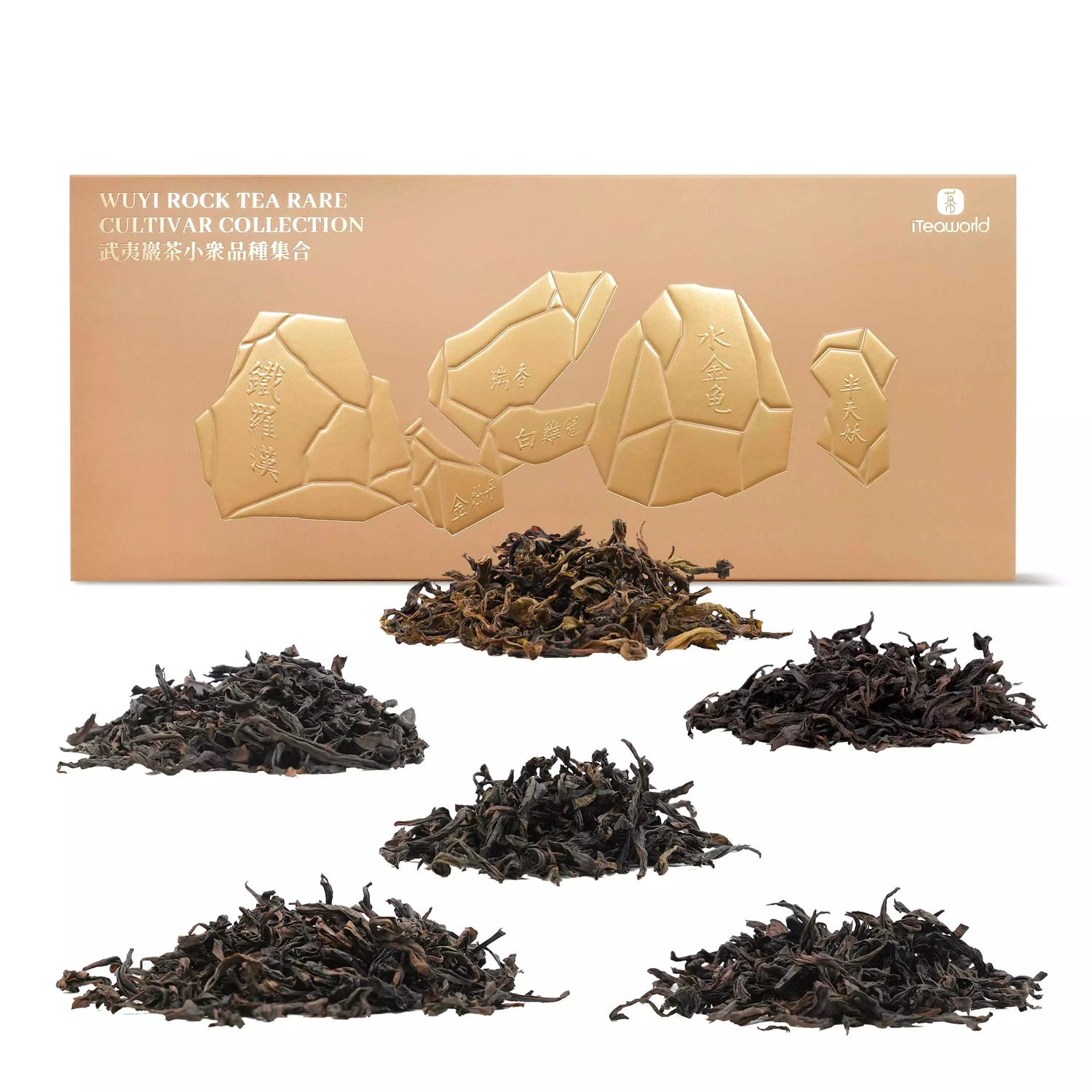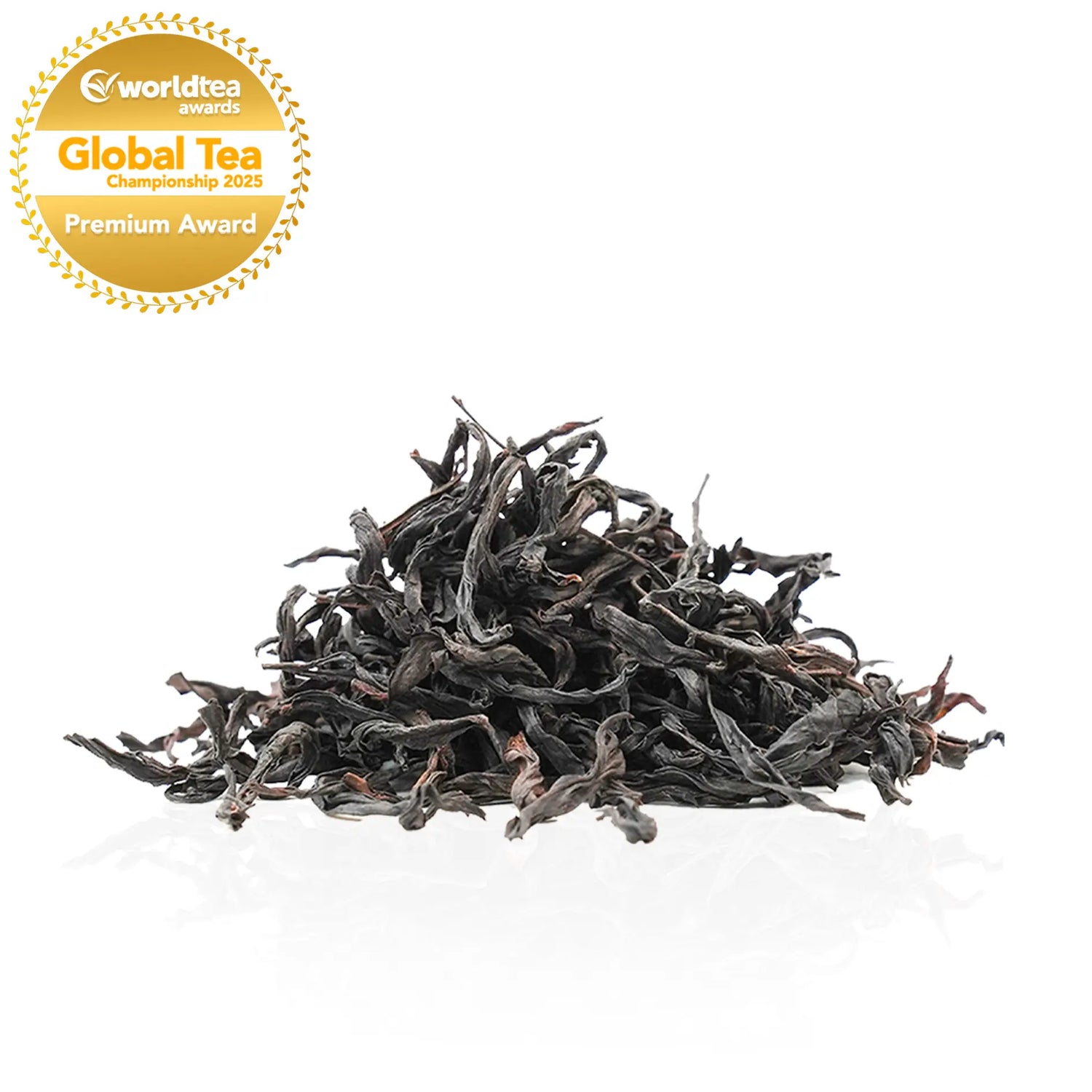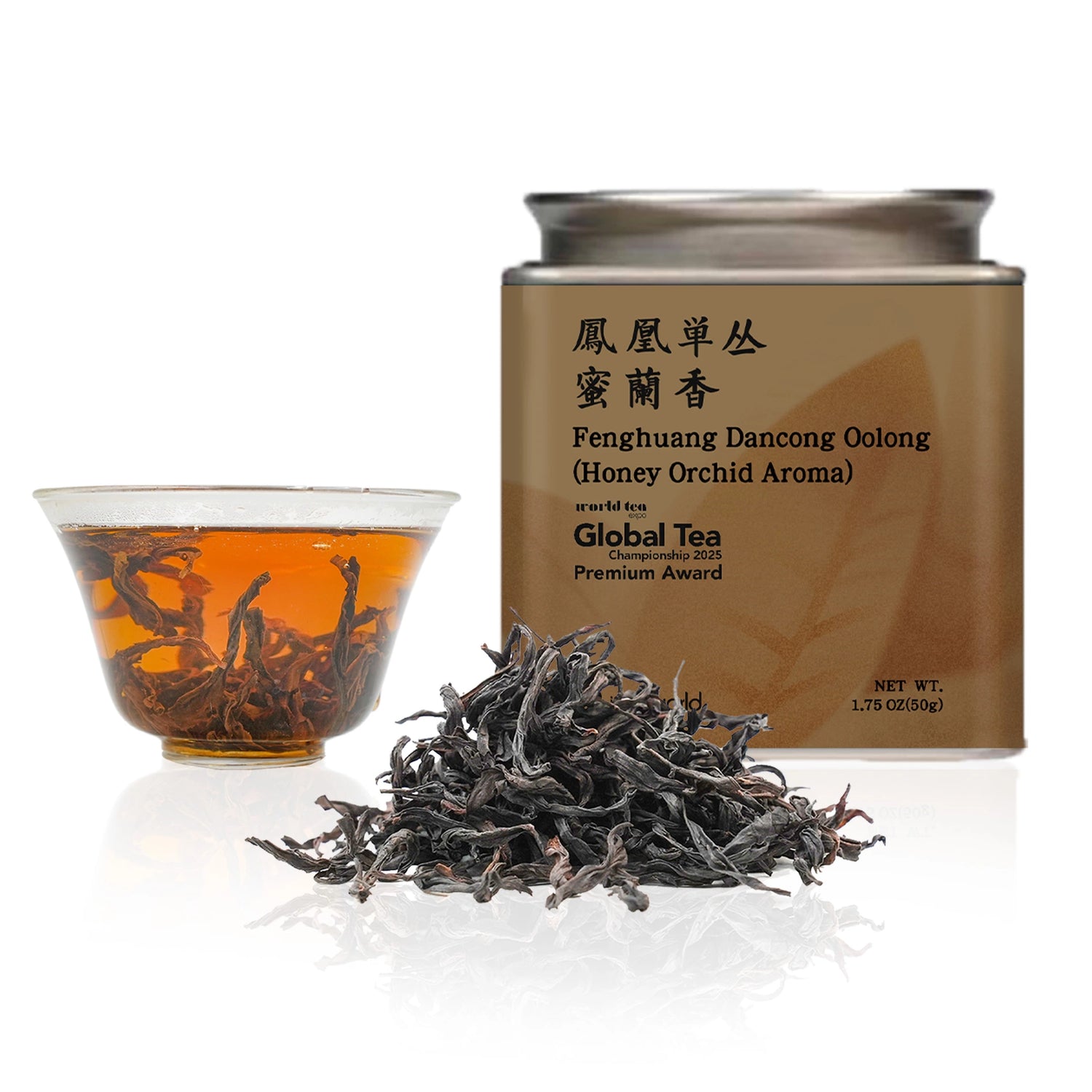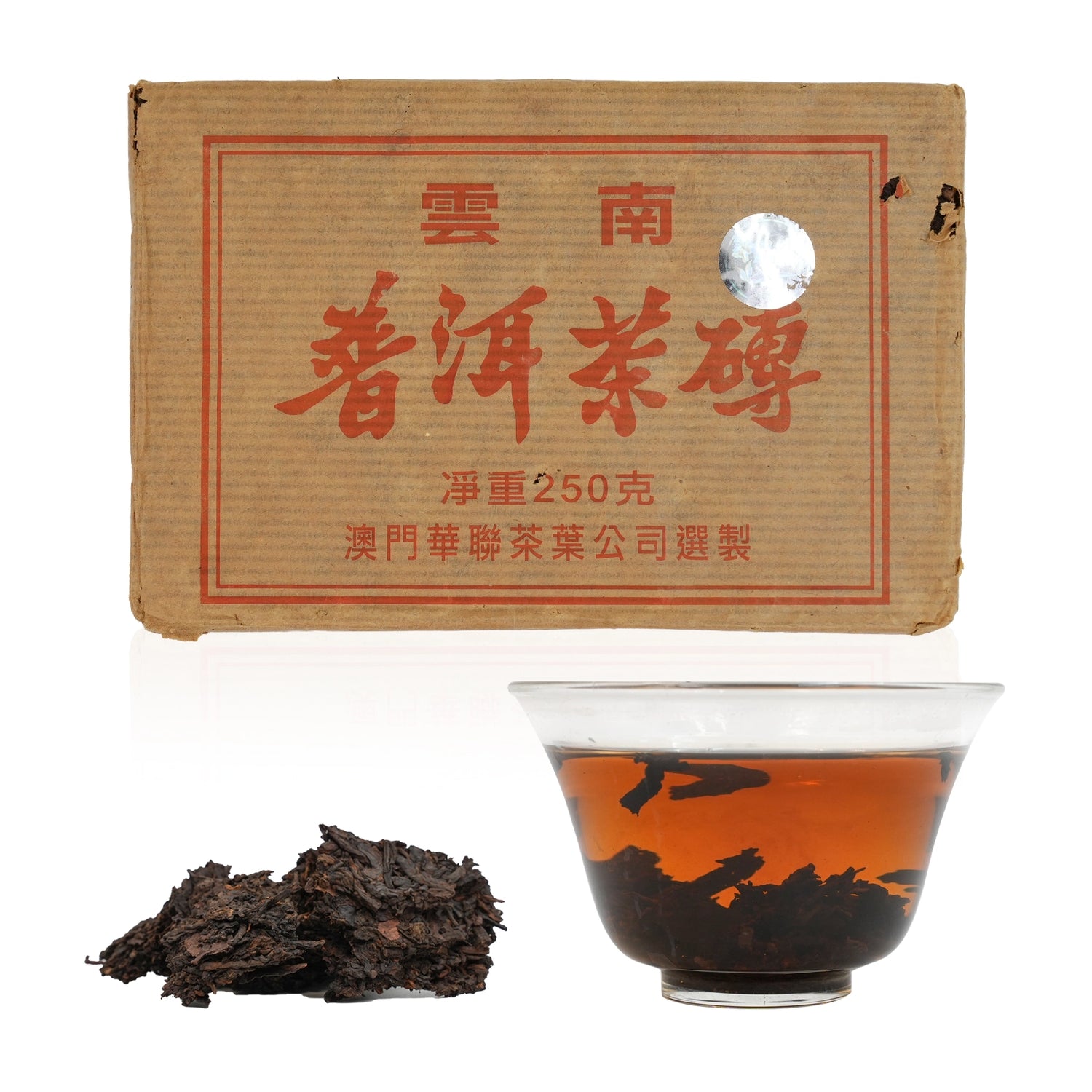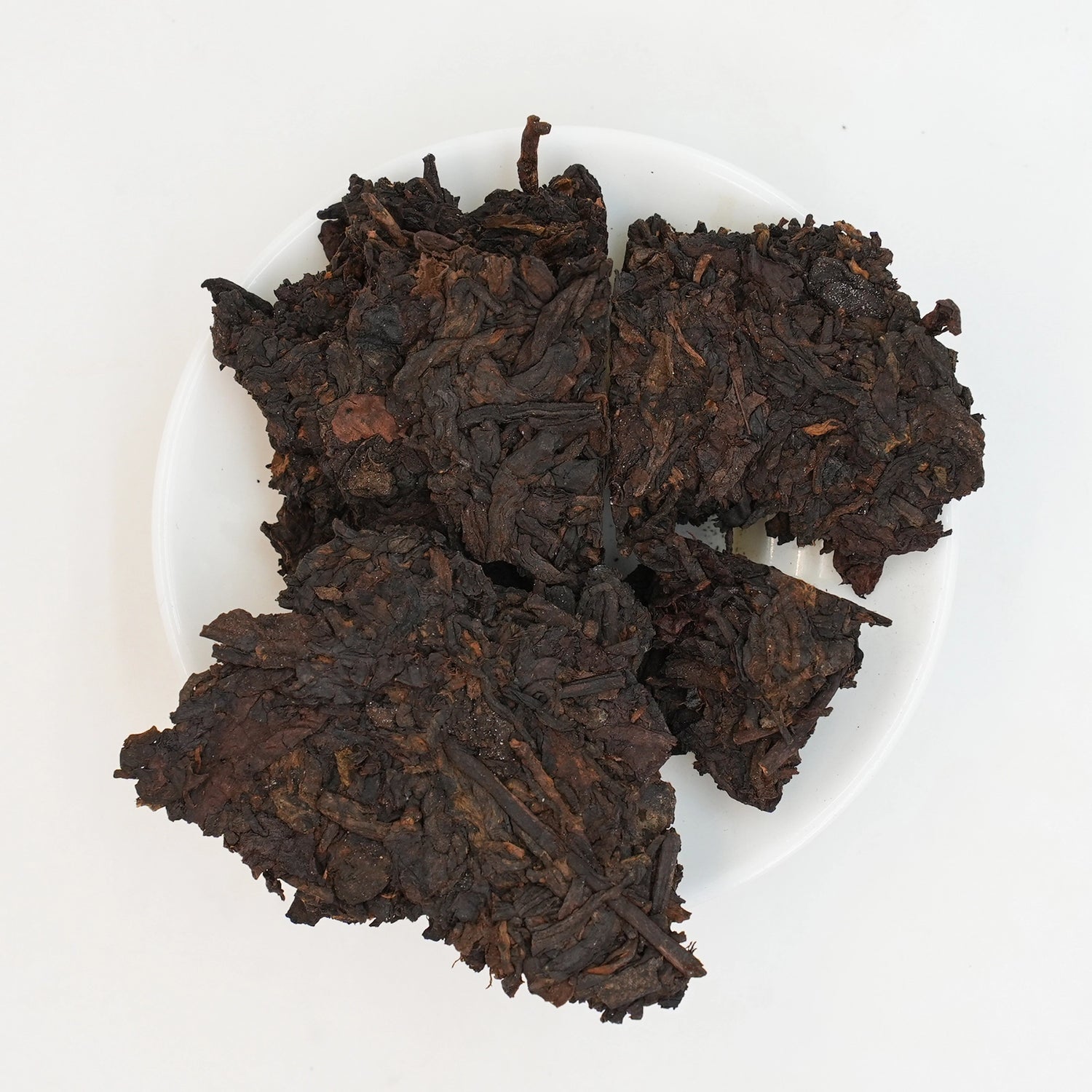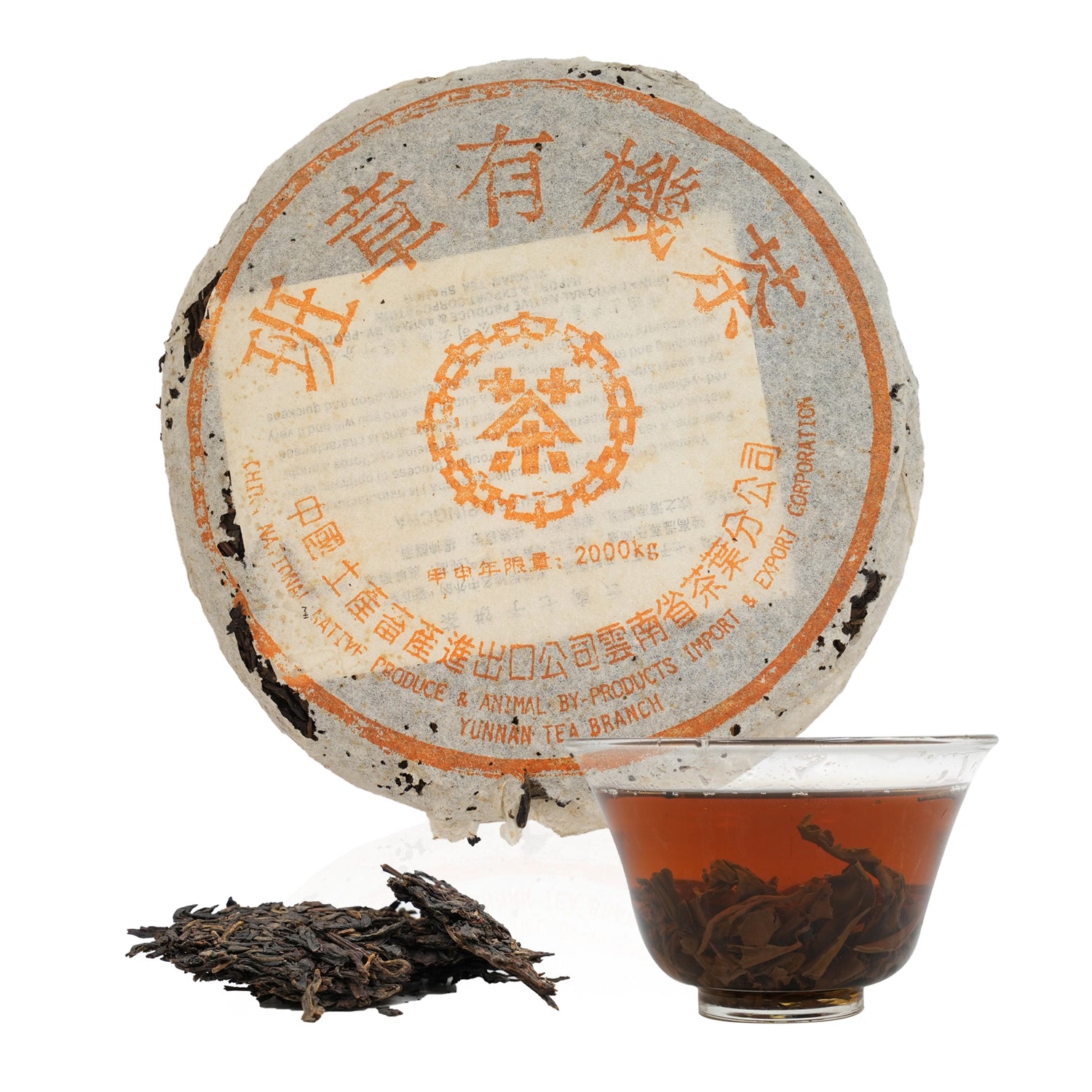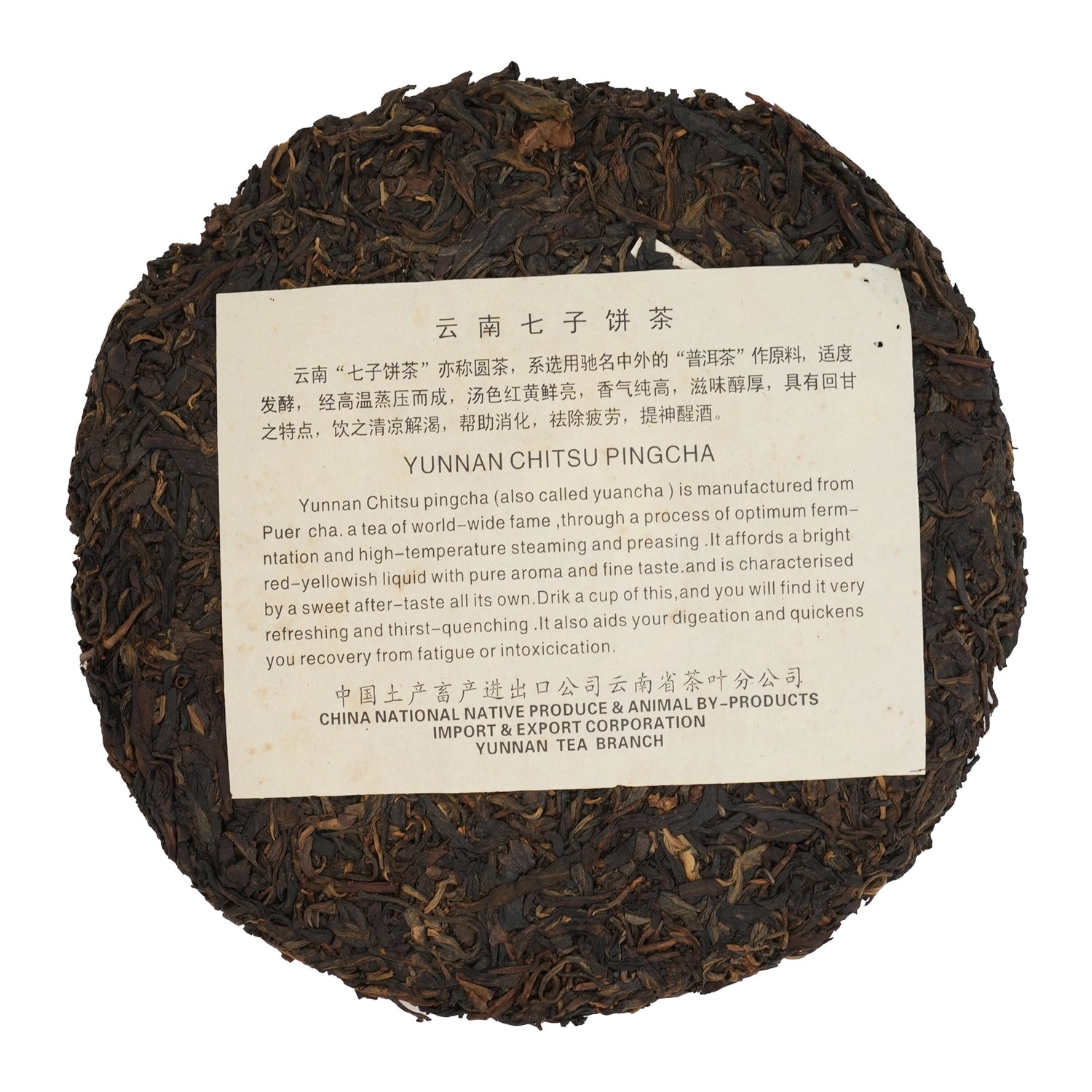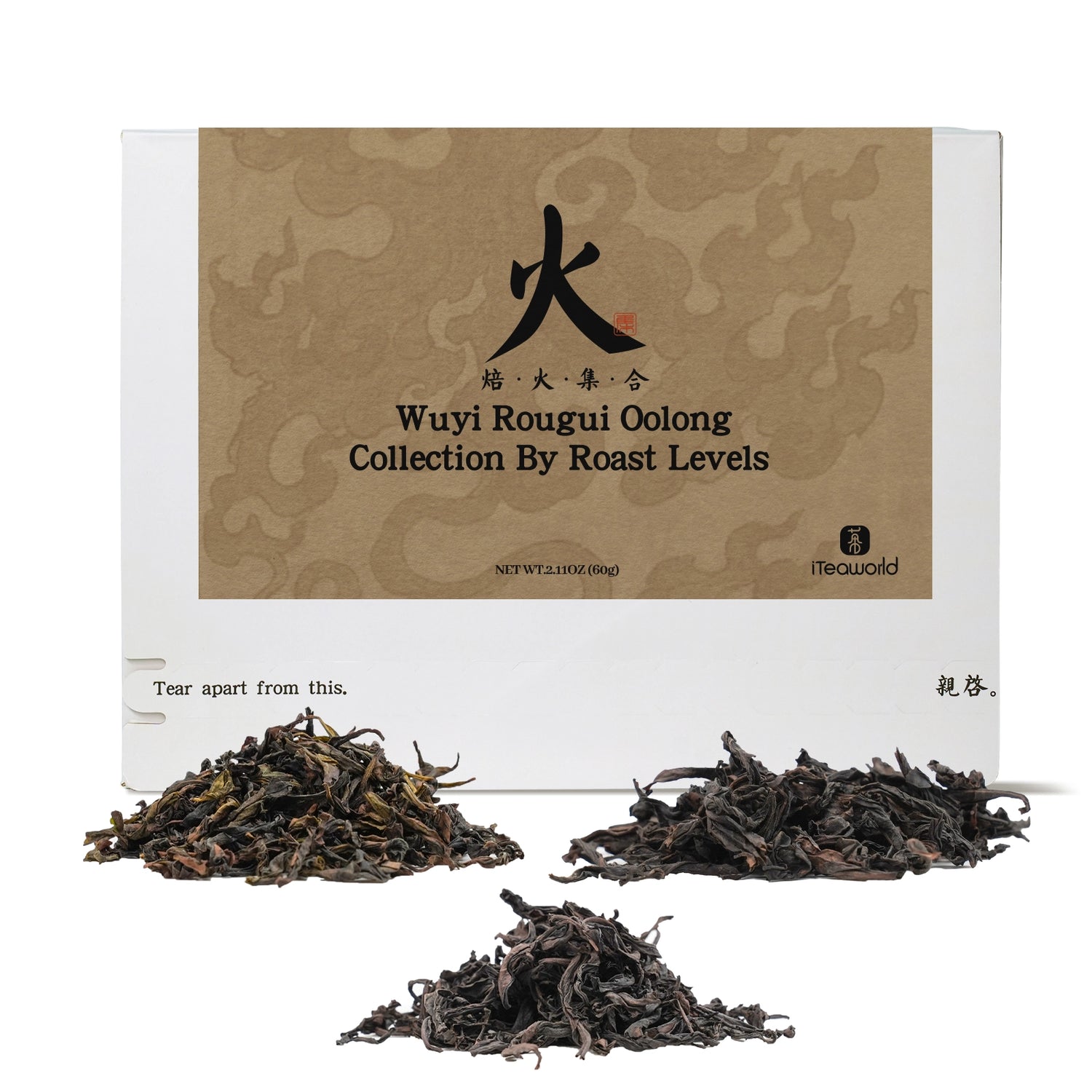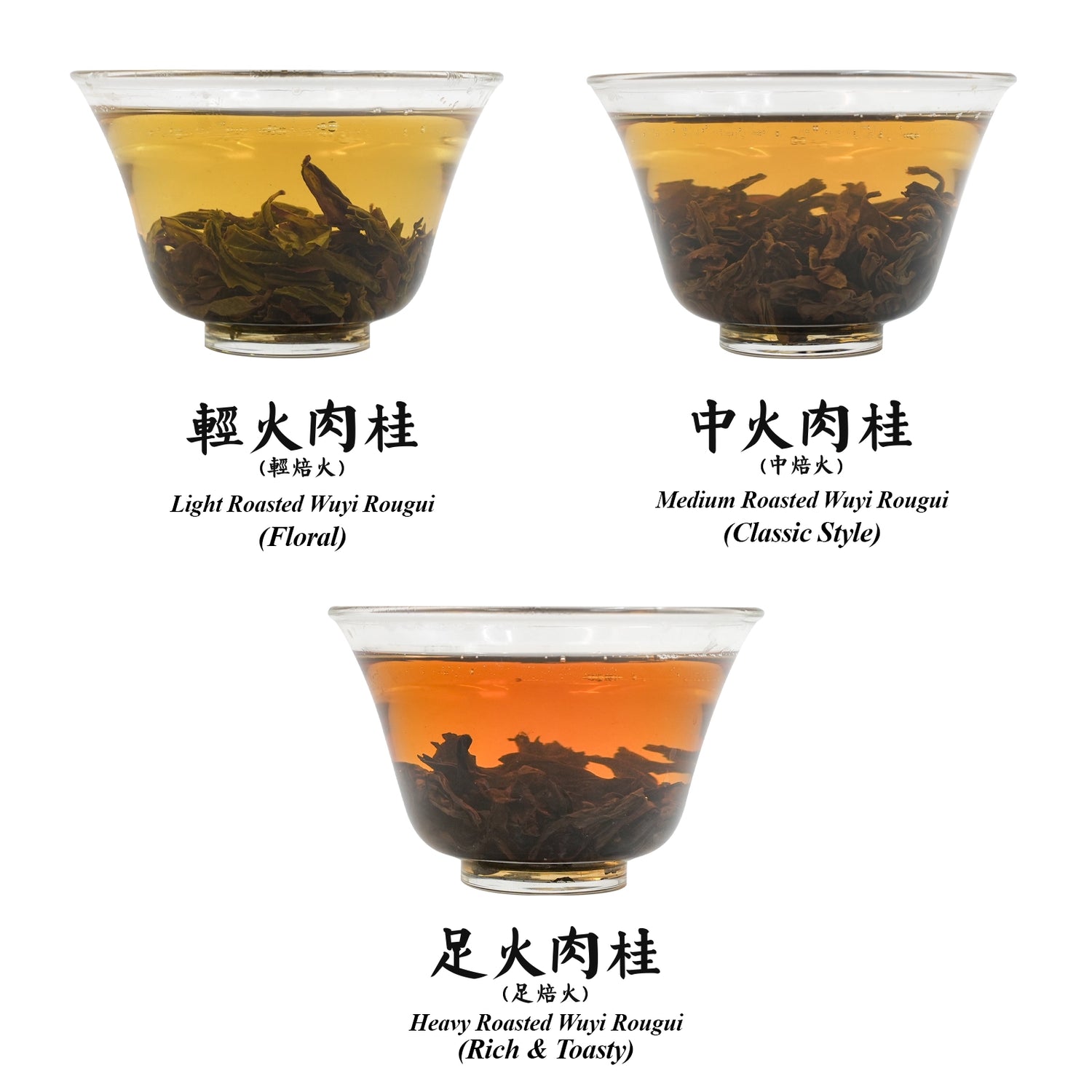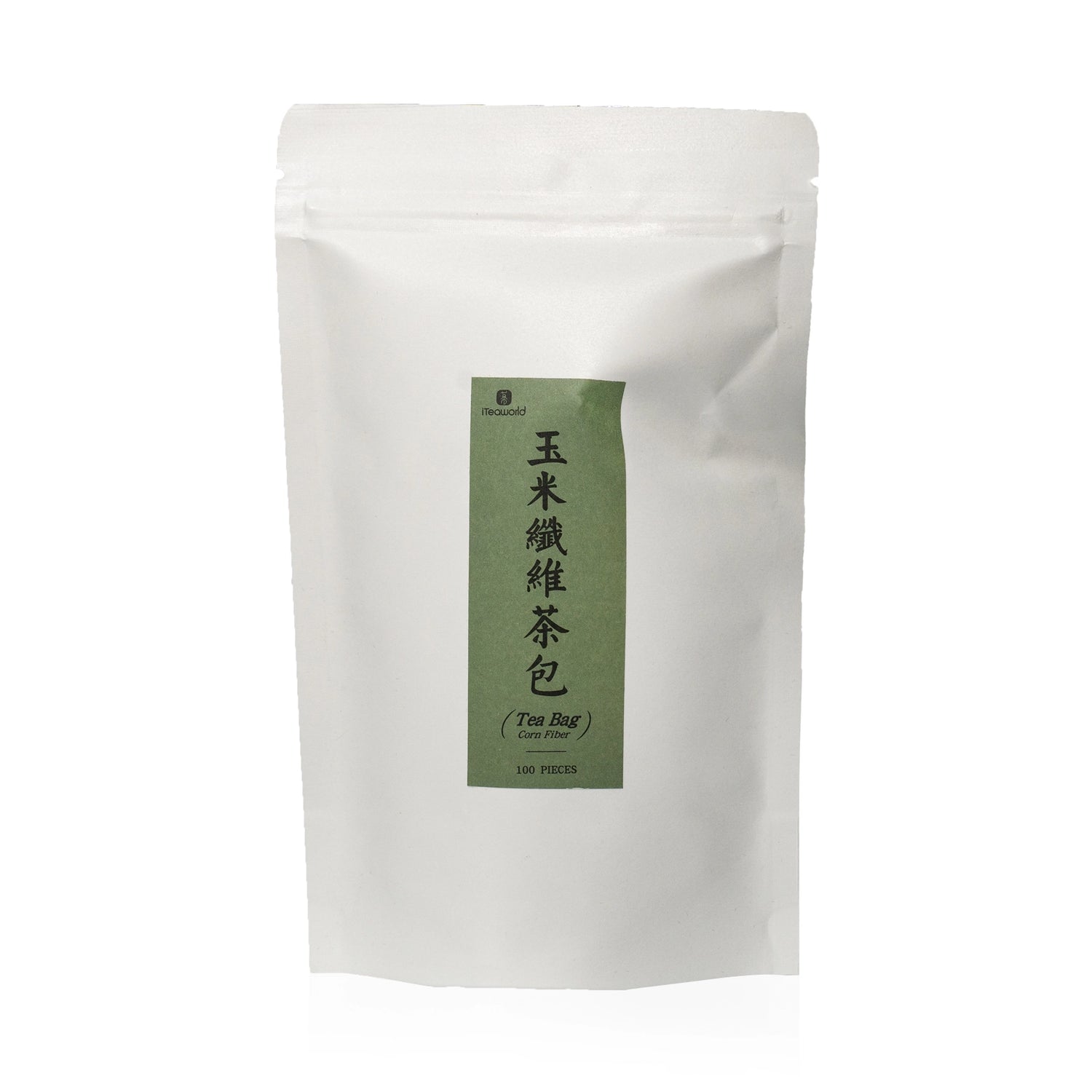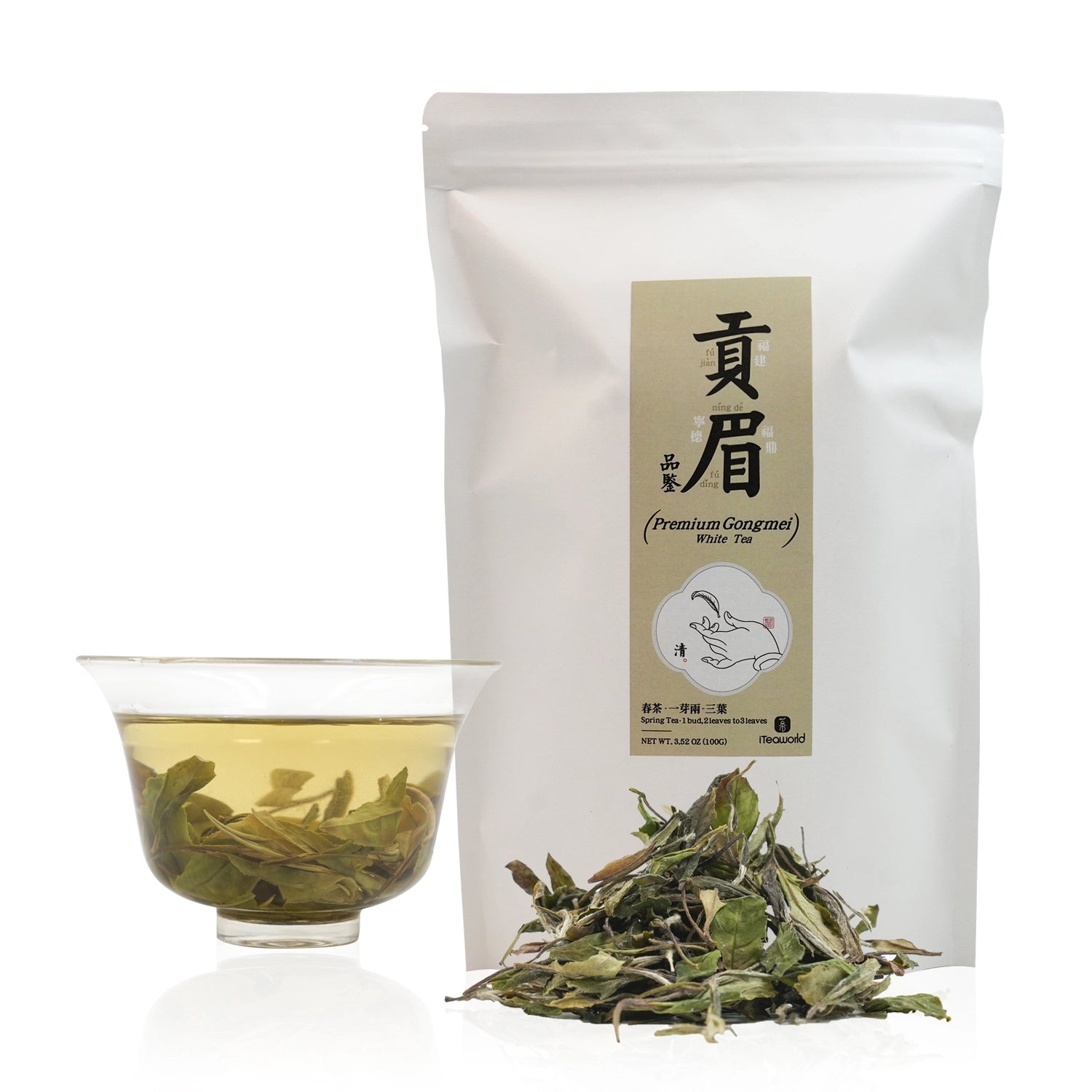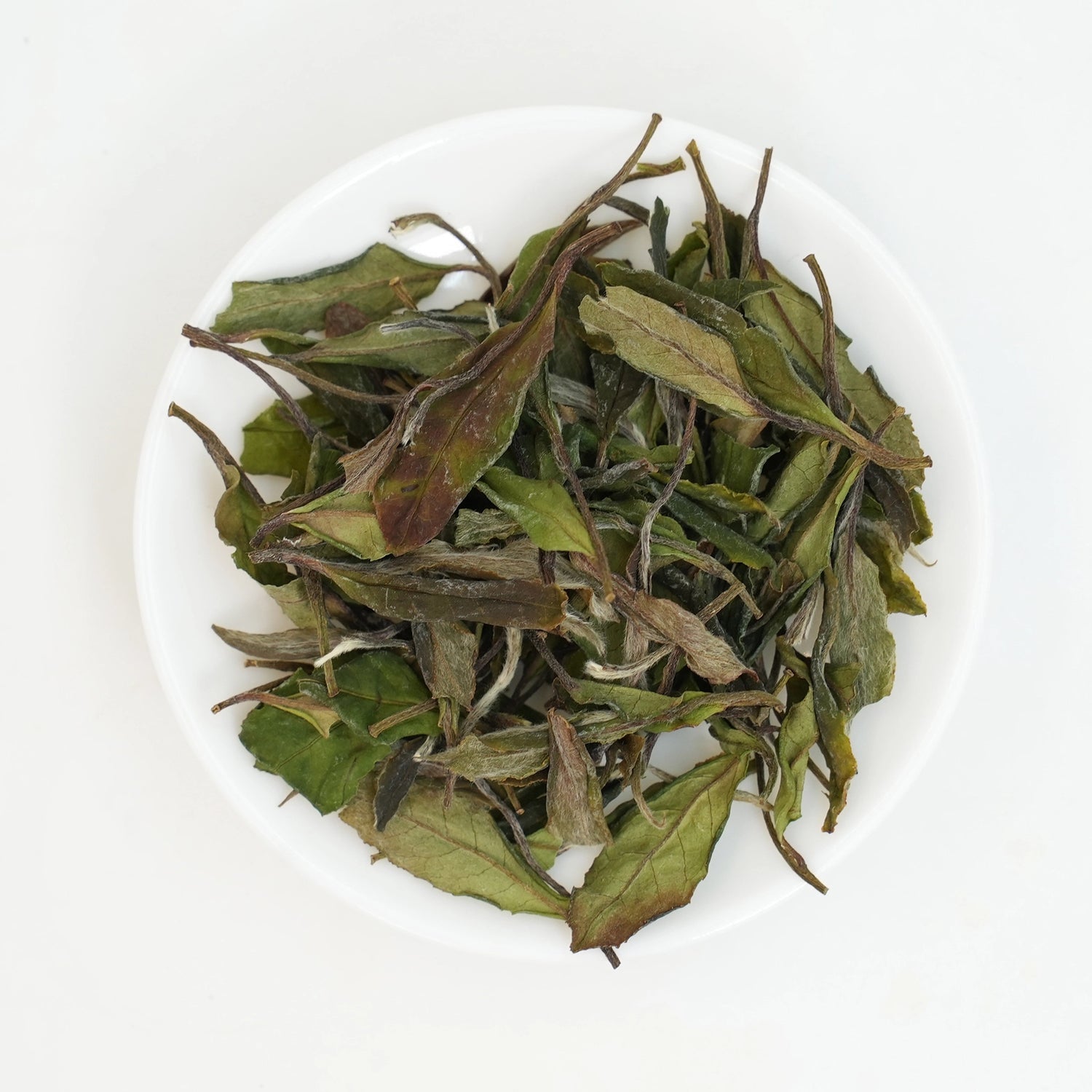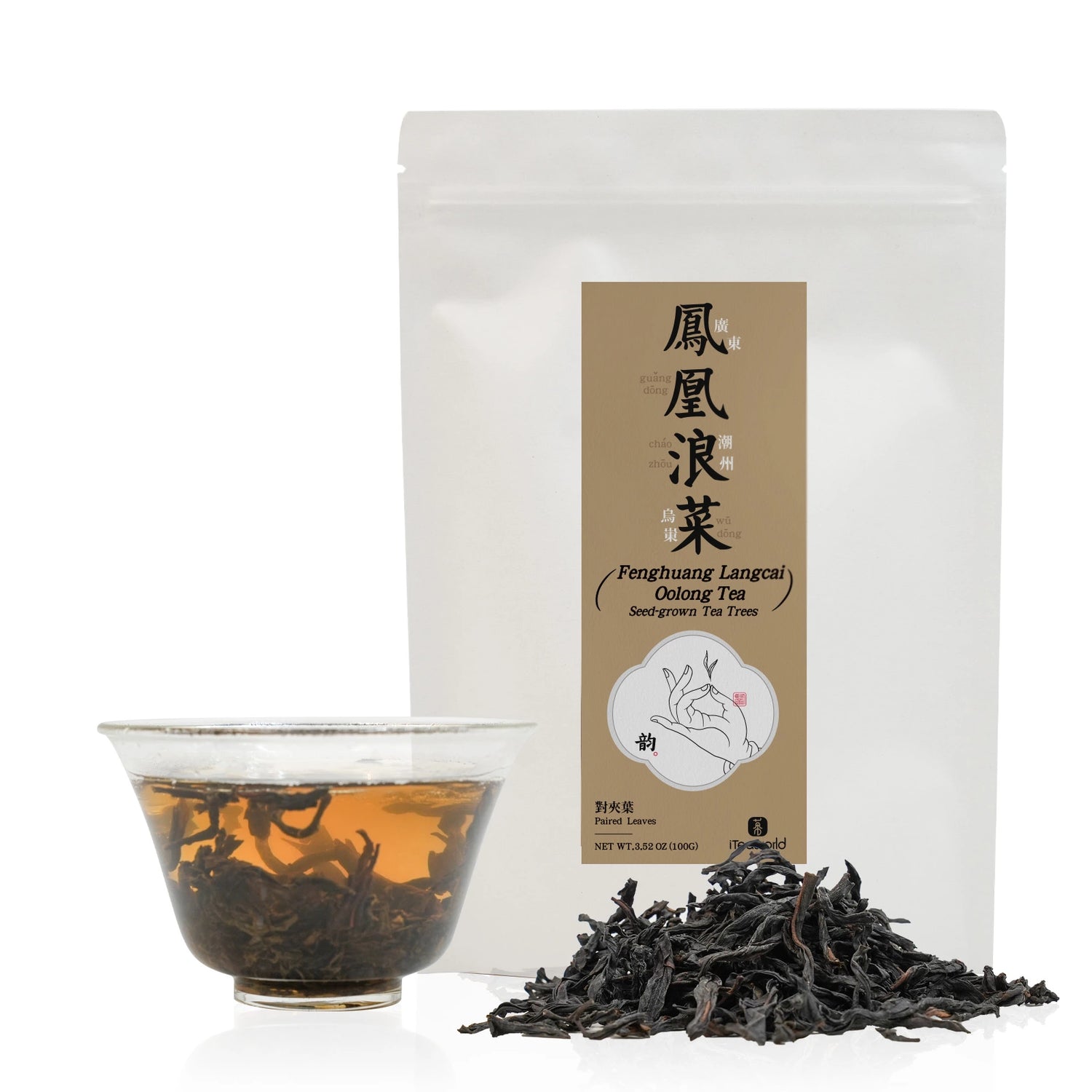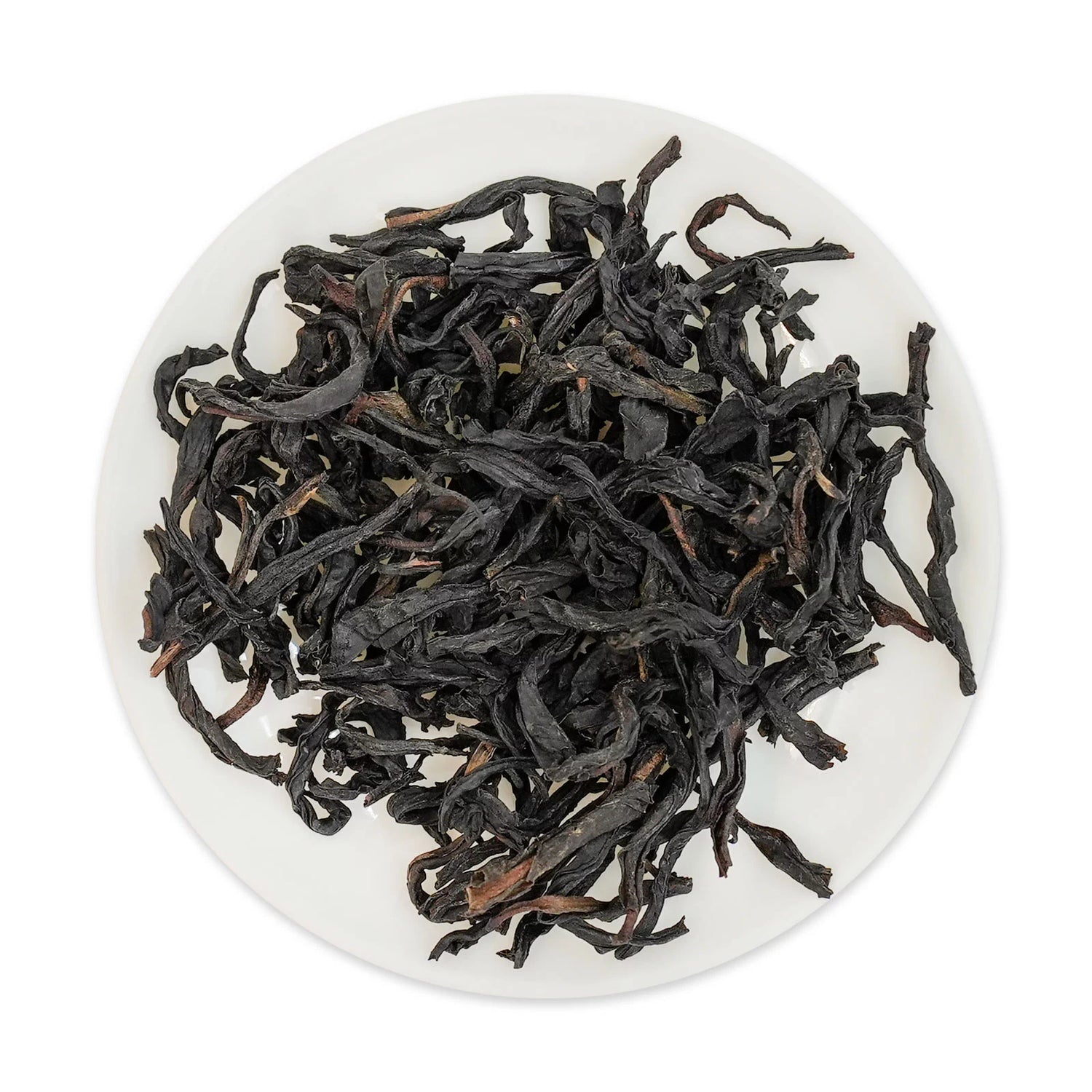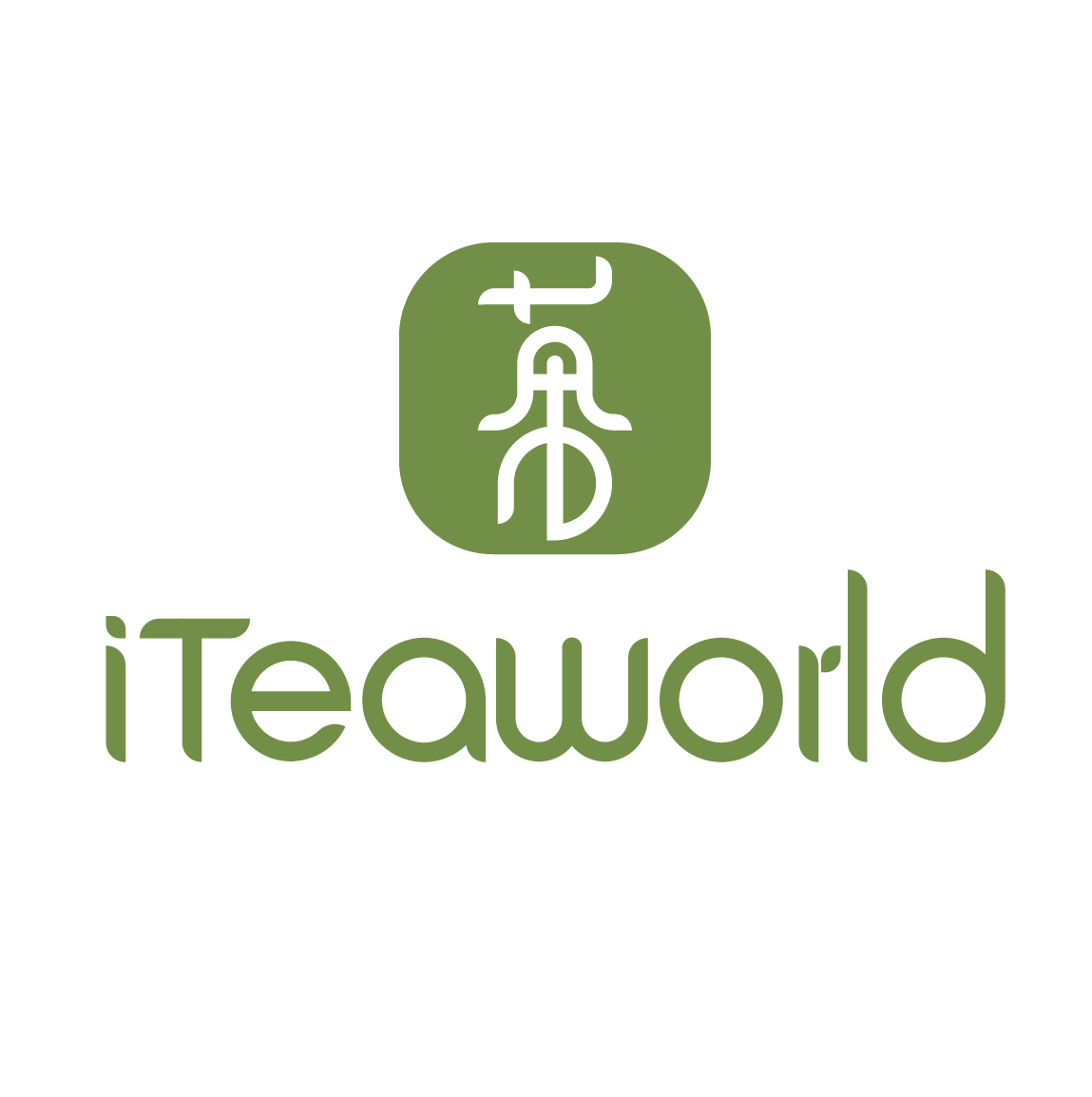Sort by:
121 products
121 products



Premium Lingtou Dancong (Honey Orchid) The Everyday Honey-Sweet Oolong 100g 2025
$24.99
Unit price perPremium Lingtou Dancong (Honey Orchid) The Everyday Honey-Sweet Oolong 100g 2025
$24.99
Unit price perLingtou Dancong | The Everyday Honey-Sweet Oolong
A smooth, affordable, and incredibly drinkable oolong with long-lasting honeyed sweetness—perfect for daily sipping and afternoon tea.
If you're looking for a "universal" tea that’s easy to love, pairs beautifully with desserts, and delivers consistent quality without breaking the bank—Lingtou Dancong is the one. Known for its mellow honey character and exceptional value, this tea could become the next “sweet icon” of Chinese tea, right after jasmine.
Tea Details
-
Cultivar: Bai Ye Dancong (White Leaf Dancong)
-
Harvest: Spring 2025
-
Origin: Lingtou Village, Fubin Town, Raoping County, Chaozhou, Guangdong
-
Elevation: 500–700m
-
Tree Age: Under 30 years
-
Roast: Traditional charcoal roast
Why You Need to Try It
-
Love sweet tea? Its thick honey note rivals most oolongs—and even some black teas.
-
Seeking value? This is one of the most affordable yet flavorful Dancong oolongs.
-
Exploring the diversity of Guangdong oolong? Lingtou is a classic, but outside the better-known Phoenix Dancong system.
Origin & Story: Sweetness Born in the Mountains
Lingtou Dancong, also called Bai Ye Dancong (White Leaf Dancong), comes from Lingtou Village in Raoping County, Chaozhou, Guangdong. First cultivated in 1961, it was selected from wild Phoenix Shui Xian trees and now accounts for over 50% of tea garden area in Guangdong.
-
Cultivar: Small-tree, large-leaf type
-
Elevation: 500–700m
-
Soil: Mountain red clay with good drainage
-
Climate: Warm, misty, ideal for floral and honey aroma development
Flavor Profile: Rich Honey, Soft Floral, Easy to Love
Lingtou Dancong offers a bright, golden infusion with high floral aroma and a distinctive “mi yun” (honey rhyme)—a signature note prized by Chaozhou tea drinkers. It’s:
-
Sweet and smooth, never bitter
-
Medium-thick in body, with a lingering aftertaste
-
Great for pairing with pastries, fruit, or just a peaceful afternoon
Flavor Comparison:
-
Lingtou Mi Lan Xiang (Honey Orchid): Emphasizes honey, subtle florals
-
Phoenix Mi Lan Xiang: Emphasizes orchid, with lighter honey undertone
“A honey-sweet tea you can drink every day and never get tired of.”
Brewing Recommendations
Gongfu Style:
-
5g per 100ml gaiwan
-
95-100°C water
-
Quick rinse, then infuse 6–8+ times starting from 10 seconds
Western Brewing:
-
2g per 200ml
-
Steep at 95–100°C for 1–3 minutes
-
Can re-steep 2–3 times
-
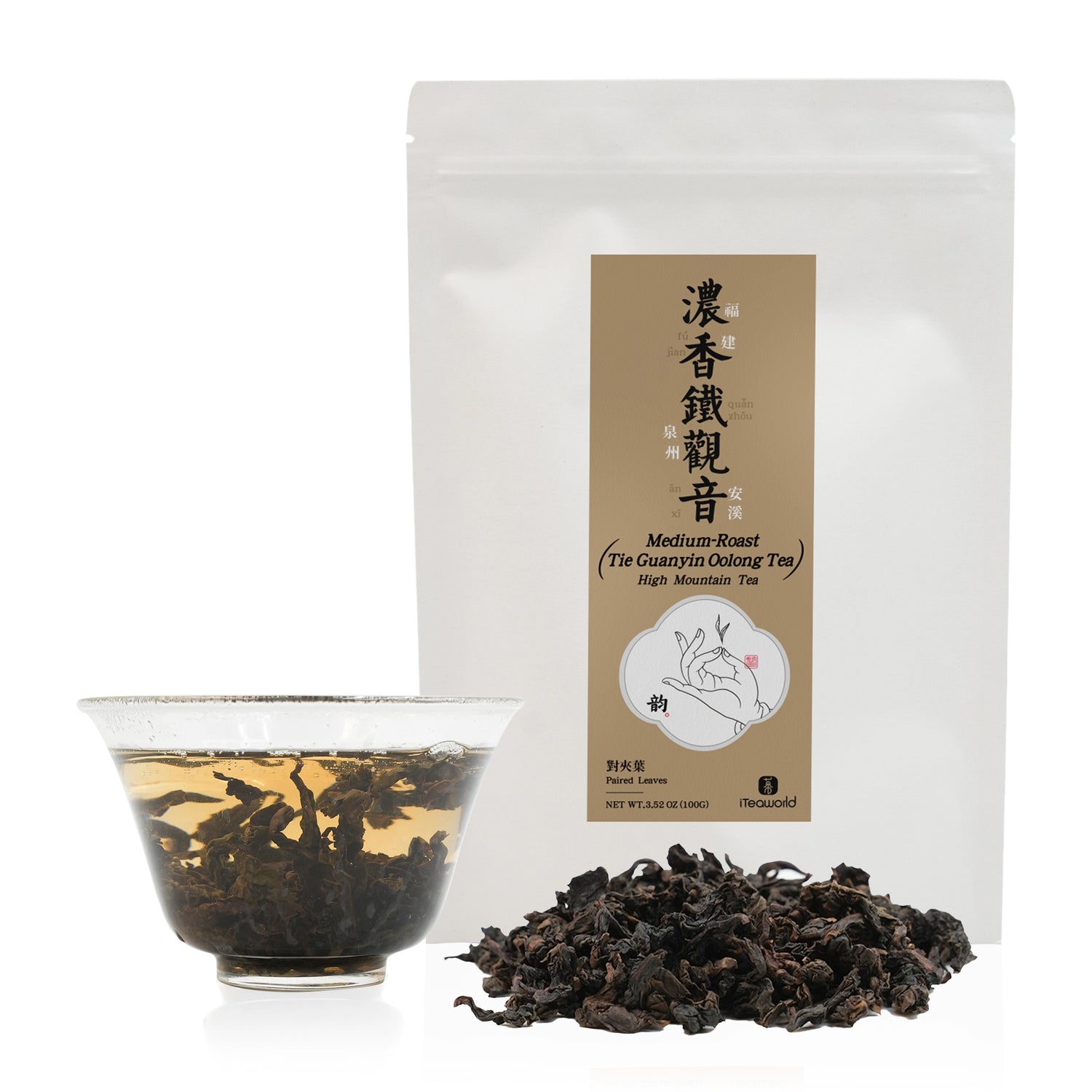

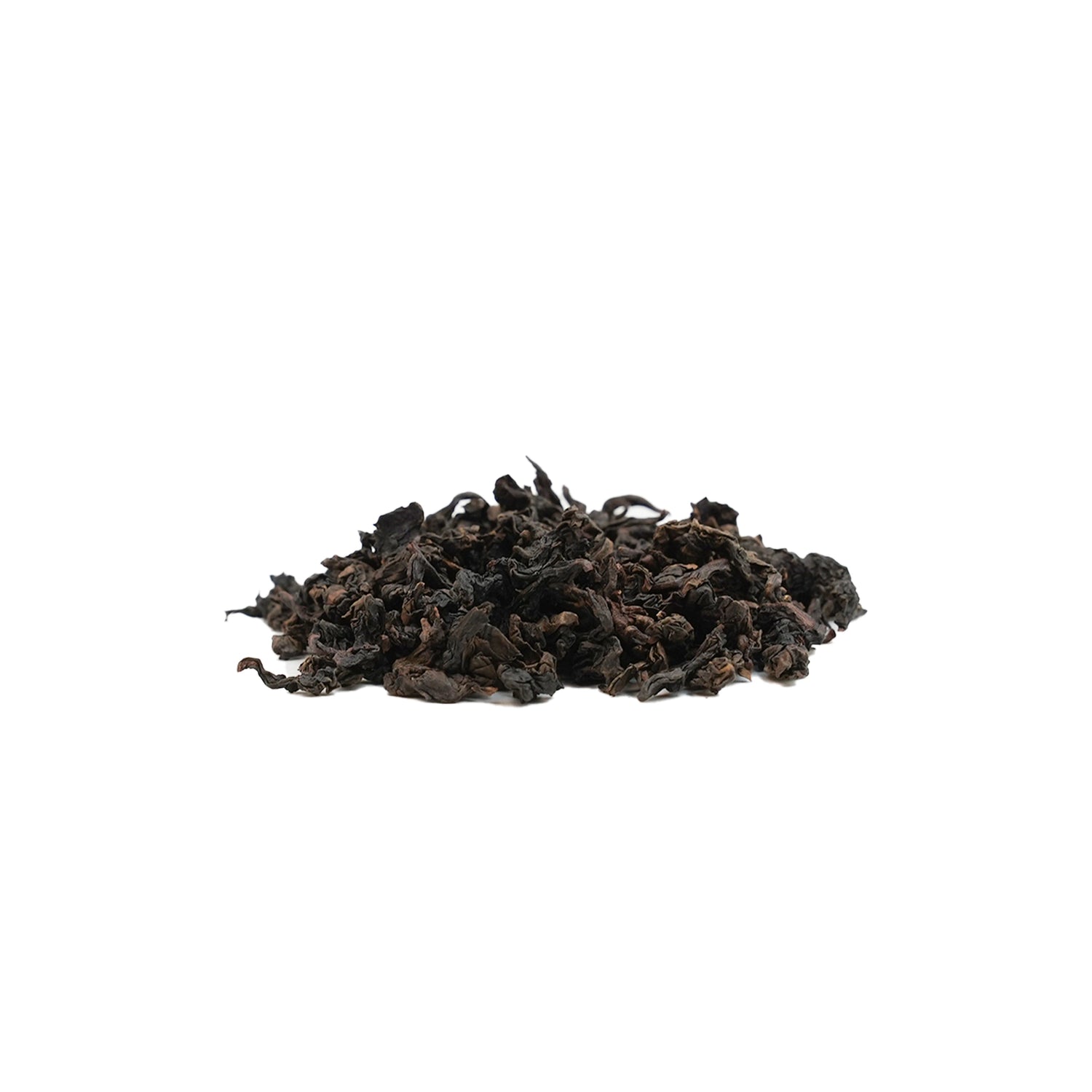
Anxi Tie Guan Yin (Traditional Charcoal-Roasted Oolong) for Daily Enjoyment
$18.99
Unit price perAnxi Tie Guan Yin (Traditional Charcoal-Roasted Oolong) for Daily Enjoyment
$18.99
Unit price perTie Guan Yin (Traditional Charcoal-Roasted Oolong) | 浓香型铁观音(炭焙)
Introduction
Tie Guan Yin is one of the most iconic oolong teas from China’s Fujian province. While its light-roast counterpart is known for floral fragrance, this traditional roasted style highlights a different spectrum—mellow body, dried fruit depth, and layered complexity.
This tea comes from Longjuan Village in Anxi, grown at 800–1000m elevation in sandy, well-drained soils surrounded by frequent mists. The region is known for producing small-batch charcoal-roasted Tie Guan Yin with strong aging potential and rich aroma.
Crafted by Wang Zhiyuan, a veteran tea maker, this 2024 spring harvest features tightly rolled leaves, roasted over low charcoal heat. Expect caramel sweetness, notes of longan and jujube, and a honeyed aftertaste. It’s a refined yet accessible choice for those who enjoy structure, warmth, and endurance in their oolongs.
Origin: Longjuan Village, Longjuan Township, Anxi County, Fujian, China | 800–1000m
Roasting: Traditional charcoal roasting (light-medium fire)
Tea Maker: Wang Zhiyuan, seasoned tea artisan with local acclaim
Cultivar: Tie Guan Yin
Harvest: Autumn Tea, 2024
Oxidation: Medium (45–55%)
Roast: Light to medium (Charcoal roasted)
Suitable for: Daily drinking, cooler seasons, or fans of roasted, full-bodied oolong
Shelf Life: 3–5 years
Storage: Store in an airtight container away from light, heat, and moisture. Best consumed within 1–2 years for peak aroma; suitable for slow mellowing.
Brewing
Vessel: Yixing clay teapot or porcelain gaiwan
Water: 100ml spring/pure water : 5g tea | 100°C / 212°F
Steeping:
-
1st–3rd infusions: 10 seconds
-
Later infusions: Add 5–10 seconds per steep
-
Can be brewed up to 8–10 times
Flavor Profile
Aroma: Caramel, roasted rice, longan, jujube, hint of smoke
Taste: Full-bodied and mellow, with sweet dried fruit and subtle char
Mouthfeel: Silky and rounded, with thick liquor and soft finish
Aftertaste: Honeyed, clean, and slightly mineral—lingers on the palate
Best Enjoyed When...
-
You’re looking for a warming, cozy oolong for cooler days
-
You enjoy roasted teas with depth, but not too much bitterness
-
You want a red wine–like oolong: structured, smooth, and complex


Guangdong Oolong Tea Collection: 6 Historical Flavors for Tea Lovers 100g
$49.99
Unit price perGuangdong Oolong Tea Collection: 6 Historical Flavors for Tea Lovers 100g
$49.99
Unit price perA Boxed Journey into the Essence of Guangdong Oolong
From the ancient Shiguping oolong crafted by the She ethnic group over 1,500 years ago to today’s highly aromatic Dancong teas, this curated set brings together six signature teas from Chaozhou, Meizhou, and Raoping—the three core regions of Guangdong. A flavorful journey through 500 years of tea-making heritage.
Who would enjoy this tea?
This collection is perfect for those who have explored the classic Wuyi rock teas and are ready to dive deeper into its rare and distinctive varieties. It includes historically renowned teas like Tie Luohan, Bàn Tiān Yāo, Bai Ji Guan, Shui Jin Gui, and Bai Rui Xiang, along with newer, highly sought-after cultivars like Rui Xiang and Jin Mudan. A journey through the diverse flavors and craftsmanship of Wuyi rock tea.
Product Contains:
Tie Luohan (Iron Arhat)* 3 bags* 5 g
Bai Jiguang (White Cockscomb)* 3 bags* 5 g
Shui Jin Gui (Golden Water Turtle)* 4 bags* 5 g
Bantian Yao (Half-Heaven Goblin)* 3 bags* 5 g
Jin Mudan (Golden Peony)* 4 bags* 5 g
Bairuixiang (Hundred-Fragrance Orchid) * 3 bags* 5 g
Tea Master: Chen Hui 陈辉
Origin: Jingshui Village, Xingcun Town, Wuyishan City, Fujian Province
Processing Time: November 2024
Best Before Date: 36 months
Elevation: 400-600 meters
Soil: Gravel soil
Oxidation: 45-55%
Roast Level: Medium fired
Roasting Method: charcoal roasting
Rare Wuyi Rock Tea Cultivars: Hidden Gems from the Core of Zhengyan
While teas like Da Hong Pao, Rou Gui, and Shui Xian have become well-known representatives of Wuyi Rock Tea, the rare cultivars—such as Tie Luo Han, Bai Ji Guan, Shui Jin Gui, and Ban Tian Yao—tell a deeper, more authentic story. These teas originate from wild, heirloom tea trees that have grown for centuries in the heart of the Wuyi Mountains, shaped by natural selection and careful cultivation. They embody the original genetic heritage of Wuyi rock tea.
Grown on remote cliffs and craggy ledges in the Zhengyan core production zone—places like Guidong Cave and Sanhua Peak—these tea trees sink their roots deep into rocky crevices, drawing in rare minerals. The result is a flavor profile marked by the elusive and unmistakable "Yan Yun" (rock rhyme) that connoisseurs revere.
Each rare cultivar delivers its own singular flavor experience:
Bai Ji Guan offers a light, sweet corn silk aroma.
Tie Luo Han reveals warming, herbal notes reminiscent of angelica root.
Ban Tian Yao stuns with an exotic bouquet of gardenia, milk, and honey—complex and unforgettable.
Their scarcity only adds to their mystique. For example, Ban Tian Yao yields less than 100 pounds annually. Yet despite their low production, these cultivars have a devoted following among seasoned tea drinkers and collectors. One standout, Rui Xiang, is prized as a “secret weapon” in premium blends for its piercing, long-lasting aroma.
These teas are more than just flavor—they’re living cultural heritage.
Bai Ji Guan has Taoist roots.
Shui Jin Gui is tied to legends of a golden tortoise seeking justice.
Tie Luo Han was once a top export to Southeast Asia.
In an age of mass production and standardized flavor, these rare Wuyi cultivars offer a bold alternative: complexity, character, and a deep connection to terroir. Their resilience—thriving in shade and drought—also holds promise for future tea breeding.
As local tea farmers say, “Rou Gui represents today, but the rare cultivars lead us into tomorrow.” Exploring them is like reading a living encyclopedia of Wuyi Rock Tea—each sip a page from nature’s own archive.
How to brew these teas?
-
Core Principles
Teaware: Use a porcelain gaiwan (best for aroma) or Yixing clay teapot (enhances richness).
Water: Filtered or spring water (avoid hard water). Temperature: Boiling (100°C/212°F) for medium/heavy roasted teas; 90-95°C (194-203°F) for light roasted teas.
Ratio: 1:20 tea-to-water (e.g., 5g/3.8oz tea for 110ml/3.8oz water). -
Brewing Steps
Warm the Teaware: Rinse cups and teapot with hot water to unlock aromas.
First Rinse: Pour boiling water over leaves and discard immediately (awakens tea).
Brewing:
Short Steeps: Start with 5-10 seconds for the first 3 infusions.
Gradually Increase: Add 5-10 seconds per subsequent steep.
Avoid Oversteeping: Prevents bitterness.
Pro Tips for Westerners
Flavor Clues:
"Rock Essence" (Yan Yun): A mineral aftertaste like wet stones—sign of quality
Cold Cup Test: Smell the empty cup after sipping. True Wuyi teas retain alpine herb/plum notes
Fix Bitterness: Reduce steeping time or use cooler water (88-90°C).
Pairings: Dark chocolate (for heavy roasts) or lemon tart (for light roasts).
Aged Tree Phoenix Dancong - Honey Orchid Aroma
Winner of the 2025 World Tea Expo - Best Oolong Tea
Expected shipping around April 15-20
-
Tea Master: Chen Tianjin(陈添锦)
-
Tea Variety: Honey Orchid (Mi Lan Xiang)
-
Origin: Da’an Village, Fenghuang Town, Guangdong – 1000m elevation, core Phoenix Dancong terroir
-
Tree Age: 50-70 years
-
Harvest Time: May 2024
-
Oxidation Level: 35-40%
-
Roasting: Traditional triple charcoal roasting
-
1st roast (June 2024): 80-90°C
-
2nd roast (August 2024): 100-105°C
-
3rd roast (October 2024): 90-100°C
-
A Rare Expression of Phoenix Dancong
Sourced from Da’an Village, one of the most prestigious Phoenix Dancong growing areas, this tea comes from ancient trees 50-70 years old. Nestled in the Wu Dong Mountain range (985m-1100m elevation), this region has a 700-year-old tea-making tradition, with traditional charcoal roasting.
Why Ancient Tree Honey Orchid?
-
Incredible Longevity: Can be brewed 15+ times while maintaining full-bodied flavor
-
Richer, More Complex Aroma: Ancient trees absorb more nutrients, producing tea with intense floral fragrance and lingering sweetness
-
Deeper, Fuller Taste: Higher levels of polyphenols and amino acids create a smooth, thick mouthfeel with a strong returning sweetness
Traditional Charcoal Roasting – A True Connoisseur’s Choice
Unlike electric roasting, charcoal roasting enhances aroma and depth, removing any bitterness while preserving the tea’s unique characteristics. The process allows the leaves to absorb negative ions and far-infrared energy, creating a deeper, more complex roasted note.
Additionally, charcoal-roasted Dancong:
-
Ages gracefully, developing richer flavors over time
-
Has lower moisture content, making it easier to store
-
Requires multiple rounds of small-batch roasting to ensure perfect consistency
The result? A tea that is visually stunning, rich in flavor, highly aromatic, and naturally sweet—a stark contrast to the mild taste and cloudy appearance of electrically roasted teas.
Introduction:
This Hubei Dark Tea is meticulously selected from the autumn harvest of 2022. Plucked from high-altitude tea gardens in Zhaoliqiao Town, Hubei Province, it adheres to the plucking standard of one bud and three leaves. This tea is a type of Hubei Dark Tea known as "Mi Zhuan Cha" (Rice Brick Tea), renowned for its unique flavor profile. The tea liquor is rich and robust, with a slight initial bitterness that transforms into a lasting sweet aftertaste. It primarily exudes a floral and honey-like aroma, accompanied by a subtle aged fragrance.
Reasons to Recommend:
- Unique Raw Material: Mi Zhuan Cha is a specialty tea produced in Chibi City, Hubei Province, known as the "Hometown of Chinese Brick Tea." It is a compressed black tea made entirely from tea dust, which gives it the name "Rice Brick Tea."
- Distinct Appearance: The finished Mi Zhuan Cha is visually striking, with sharp edges, a smooth surface adorned with intricate patterns, and a glossy black brick color. When brewed, it produces a deep red liquor with a pure aroma and a rich, mellow taste.
- High-Mountain Tea Gardens: The tea trees grow at high altitudes, where significant daily temperature variations slow their growth. The abundant mist and moisture nourish the tea trees, enriching the leaves with nutrients and resulting in a tea with a robust flavor and strong aroma.
Oxidation Level: Wet piling followed by high-temperature steam pressing
Roasting Level: None
Tea Garden Soil: Yellow-brown soil
Processing Time: Autumn 2022
Best Before Date: Suitable for long-term storage
Tea Variety: South Hubei Group Variety
Introduction:
This Anhua Dark Tea is meticulously selected from the autumn harvest of 2021. Plucked from wild tea gardens in Anhua County, Hunan Province, it adheres to the plucking standard of one bud and three leaves. Recognized by the global tea and medical communities as one of the healthiest beverages of the 21st century, this tea exudes a unique pine smoke aroma when brewed, offering a pure, mellow, and sweet taste with a lasting aftertaste.
Reasons to Recommend:
- Special Processing Technique: Anhua Dark Tea undergoes a unique "wet piling" (wo dui) process twice—once during the initial processing of raw tea and again during the final product processing. This process utilizes the temperature and humidity of the tea leaves after fixation, allowing microorganisms in the air to interact with the leaves, resulting in the transformation of the tea's internal compounds.
- Premium Quality: This Anhua Dark Tea (Tianjian) is considered the finest variety available on the market and was historically treasured as a tribute tea for emperors.
- Unique Aroma: A special step in the production of Anhua Dark Tea is the "Seven Star Stove" roasting. During this process, pine wood is burned beneath the stove, and the pine smoke is channeled into the tea leaves, infusing them with a distinctive pine smoke aroma while drying.
Oxidation Level: Wet piling fermentation
Roasting Level: Seven Star Stove pine smoke roasting
Tea Garden Soil: Weathered slate soil
Processing Time: 2021
Best Before Date: Suitable for long-term storage
Tea Variety: Anhua Group Variety
During the aging and transportation process of aged tea, the packaging and the tea itself may get damaged. Please be cautious when purchasing if you mind this.
Recommended Purchase
This 1998 Yunnan Pu-erh Tea Brick is a remarkable product crafted by the renowned Macao Hualian Tea Company. The tea brick was custom-produced by the Menghai Tea Factory, utilizing premium Yunnan large-leaf tea leaves. After 29 years of natural dry storage in Dongguan, the tea has developed a rich camphor and aged aroma, with a mellow, sweet, and smooth taste. The brick's appearance is flat with distinct edges and corners, uniform thickness, and a dark brown color. The liquor presents a bright orange-yellow hue with some sediment. This tea is an excellent choice for Pu-erh enthusiasts and collectors seeking a well-aged, high-quality tea with historical significance.
Key Details about 1998 Yunnan Pu-erh Tea Brick
- Origin: Yunnan Province, China
- Production Date: 1998
- Grade: Second Grade
- Tea Cultivar: Yunnan Large-Leaf Tea
- Craftsmanship: Custom-produced by Menghai Tea Factory for Macao Hualian Tea Company; traditional processing and compression techniques
- Flavor Highlights: Pronounced camphor and aged aroma; mellow, sweet, and smooth taste
- Storage: Naturally stored in Dongguan dry warehouse; well-preserved without musty odors
What is Yunnan Pu-erh Tea Brick?
Yunnan Pu-erh Tea Brick is a type of compressed tea made from Yunnan large-leaf tea varieties. The tea undergoes a oxidation process, during which it is steamed and pressed into brick shapes for aging. Over time, the tea develops complex flavors and aromas, becoming smoother and more mellow. Pu-erh tea bricks are highly valued for their aging potential and are often sought after by collectors and tea enthusiasts.
About Macao Hualian Tea Company
Macao Hualian Tea Company, established in 1965 by Mr. Zeng Zhihui and four patriotic overseas Chinese partners, has played a pivotal role in the tea industry. The name "Hualian" signifies the unity of overseas Chinese in business. During the 1960s to 1980s, the company collaborated closely with the Guangdong Tea Import and Export Corporation, serving as a crucial channel for exporting Chinese tea to international markets. Notably, Hualian held the exclusive rights as the sole distributor for the China Tea Import and Export Company in Macau, commanding over 90% of the local market share. Their Pu-erh tea bricks, especially those produced in partnership with the Menghai Tea Factory, are esteemed for their quality and have become coveted items among tea collectors.
Recommended Brewing Methods
-
Gaiwan Brewing
- 100ml Gaiwan
- 95℃-100℃
- 5-7 times
- 1:15 to 1:25
- 10~20 seconds
-
Thermos Brewing
- 1g tea per 100ml (3.4oz) water
- Use boiling water (212°F)
- Steeping Time: 1-2 hours
- Tool: Insulated thermos
-
Boiling Method
- Add 1g tea per 100ml (3.4oz) water
- Boil for 1-2 minutes, then let sit for 2-3 minutes
- Rebrew by boiling 3 minutes longer with each steeping
- Use a ceramic or glass teapot for optimal flavor
- Enjoy up to 3-4 brews
Storage Guidelines
Store this tea in a dry, cool environment with a humidity level below 45% and temperature below 25°C (77°F). Keep it away from strong odors, light, and air exposure. Proper storage ensures the tea retains its flavor and continues to age gracefully over time.
Weight & Packaging
- Net Weight: 250g
- Packing Type: Paper-wrapped
During the aging and transportation process of aged tea, the packaging and the tea itself may get damaged. Please be cautious when purchasing if you mind this.
Recommended Purchase
This 2004 Yunnan Qi Zi Bing Tea is a traditional Pu'er tea, crafted from summer-harvested tea leaves of the renowned Ban Zhang organic tea gardens in Yunnan. Known for its deep, rich flavor profile, this tea undergoes moderate fermentation and is steamed and compressed into a round shape. With a bright orange-red liquor and a distinct camphor aroma, this tea has a full-bodied, smooth taste with a lingering sweetness. As the tea ages, the bitter and astringent notes fade, leaving a refreshing, cooling aftertaste that is ideal for digestion and rejuvenation. This tea is perfect for those who appreciate the bold characteristics of Puerh tea and the specific flavor of Ban Zhang.This product remains in its original packaging and is no longer available on the market.
Key Details about Yunnan Qi Zi Bing Tea
- Origin: Yunnan, China
- Production Date: 2004
- Grade: Second Grade
- Tea Cultivar: Yunnan Large Leaf
- Craftsmanship: Moderately fermented, then steamed and compressed into round cakes.
- Flavor Highlights: Camphor aroma, strong yet quickly fading bitterness, clear orange-red liquor with a lingering sweetness
- Storage: Naturally stored in Dongguan with slight humidity, no off-flavors
What is Yunnan Qi Zi Bing Tea?
Yunnan Qi Zi Bing Tea, also known as "round tea," is a special type of compressed Puerh tea, made with high-quality leaves from the famous Ban Zhang tea gardens in Yunnan. Known for its strong, full-bodied flavor, the tea undergoes careful fermentation and steaming before being compressed into round cakes, which allows the flavors to develop over time. Its smooth, slightly bitter taste transforms with aging, revealing a rich, mellow character. As it continues to age, this tea becomes increasingly smooth and balanced, with a noticeable cooling and refreshing aftertaste.
Recommended Brewing Methods
-
Gaiwan Brewing
- 100ml Gaiwan
- 95℃-100℃
- 5-7 times
- 1:15 to 1:25 |
- 10~20 seconds
-
Thermos Brewing
- 1g tea per 100ml (3.4oz) water
- Use boiling water (212°F)
- Steeping Time: 1-2 hours
- Tool: Insulated thermos
-
Boiling Method
- Add 1g tea per 100ml (3.4oz) water
- Boil for 1-2 minutes, then let sit for 2-3 minutes
- For each additional brew, extend boiling time by 3 minutes.
- A ceramic or glass teapot is recommended for the best taste.
- Enjoy up to 3-4 brews
Storage Guidelines
Store this tea in a well-ventilated, dry environment with a humidity level below 45% and temperature below 25°C (77°F). Keep it away from strong odors, light, and air exposure. Proper storage ensures the tea retains its flavor and continues to age gracefully over time.
Weight & Packaging
Net Weight: 357g (12.6oz)
Packing Type: Paper-wrapped
About the Source of the Tea
This Yunnan Qi Zi Bing Tea is sourced from the high-quality Ban Zhang tea gardens, which are renowned for producing some of the finest Puerh teas. Located in the southern part of Yunnan, the Ban Zhang region has a long history of tea cultivation, and its leaves are prized for their robust flavor and ability to age well over time. The tea is carefully produced by the Yunnan Tea Import and Export Company, which is known for its commitment to high standards in tea production.
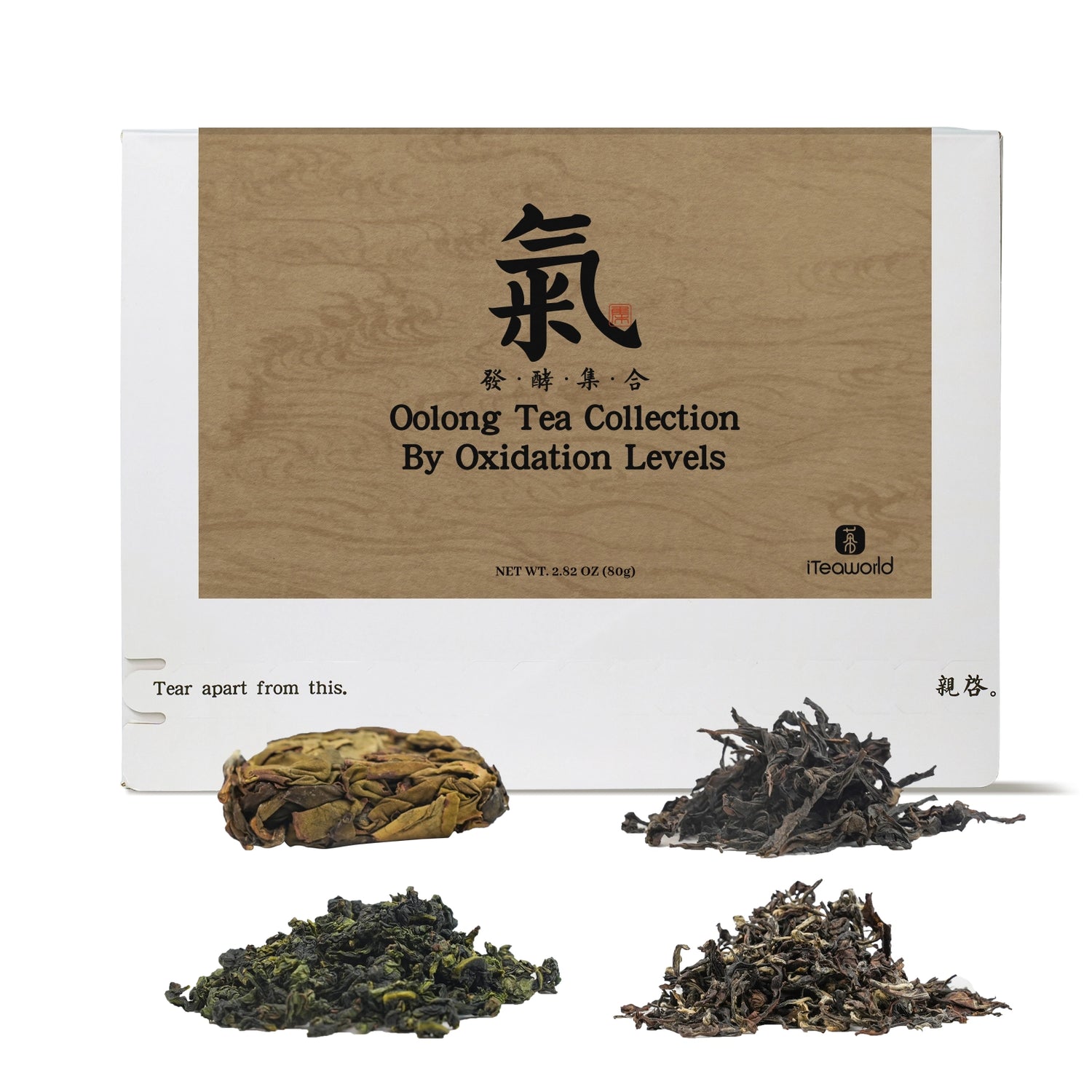
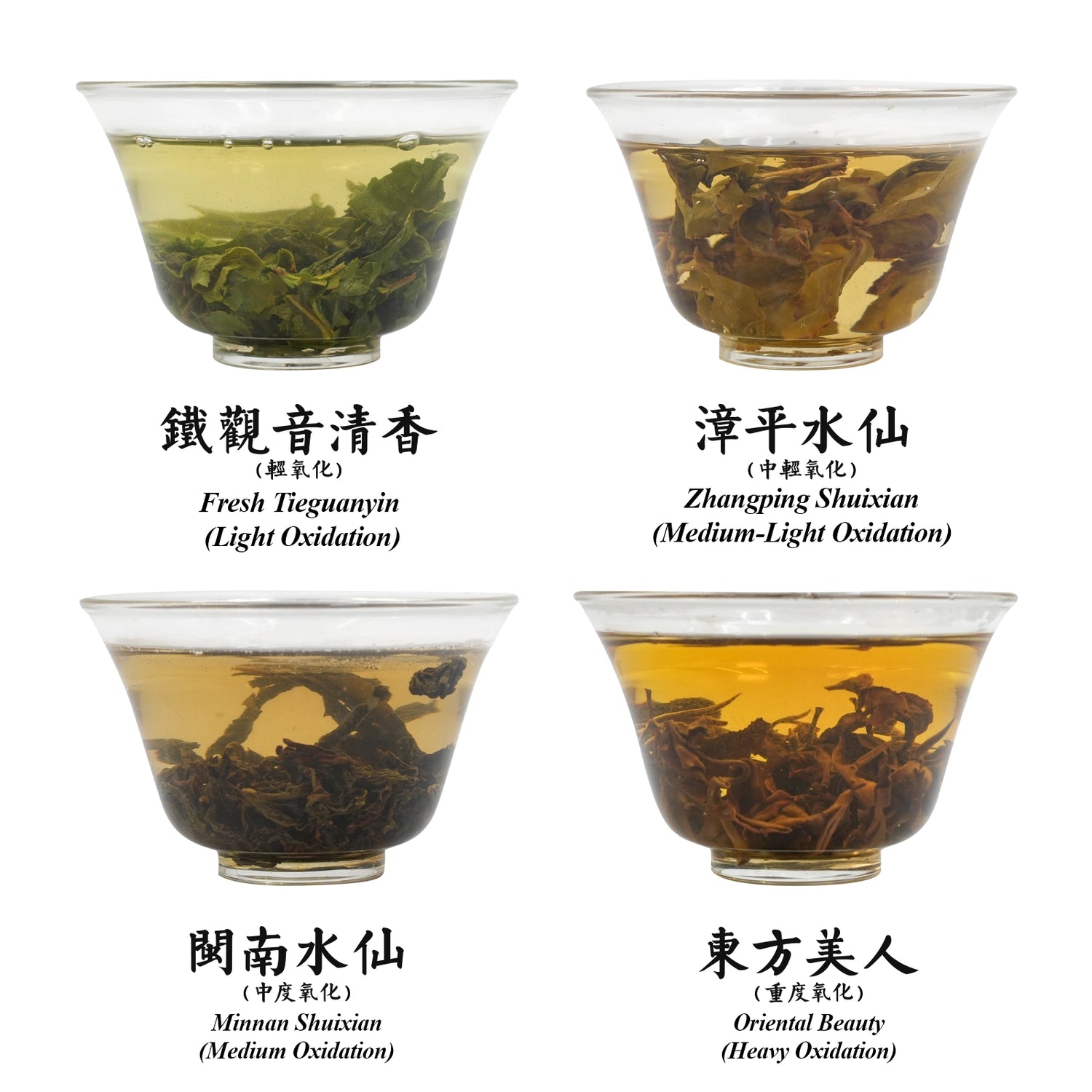
Oolong Tea Comparison Set: 4 Oxidation Levels (Tieguanyin to Oriental Beauty) 80g
$34.99
Unit price perOolong Tea Comparison Set: 4 Oxidation Levels (Tieguanyin to Oriental Beauty) 80g
$34.99
Unit price perOolong Tea: The Balance of Oxidation
Oolong tea is a partially oxidized tea, with oxidation levels ranging from 10% to 70%. Oxidation plays a key role in shaping the tea's aroma and the brightness of its flavor. Light oxidation creates fresh floral and fruity notes, while higher oxidation brings out richer, more mature fruit or honey-like aromas.
Lightly Oxidized Oolong (10%–25%): Examples like Wen Shan Baozhong and light-roast Tieguanyin showcase fresh floral and fruity scents.
Moderately Oxidized Oolong (25%–50%): Teas such as Phoenix Dan Cong and medium-roast Tieguanyin have a balanced profile, combining floral notes with hints of honey, fruit, or roasting, resulting in a complex aroma.
Heavily Oxidized Oolong (50%–70%): Classics like Da Hong Pao, Wuyi Rougui, and Oriental Beauty deliver mature fruit aromas, roasted or caramel-like notes, and a smooth, full-bodied brew.
This product includes four renowned oolong teas, all lightly roasted but with varying oxidation levels. It’s the perfect way to explore how different oxidation levels influence the flavor and aroma of oolong tea.
Products Included:
- Fresh Tieguanyin (Light Oxidation) 20g
- Zhangping Shuixian Oolong Tea (Medium-Light Oxidation) 20g
- Minnan Shuixian (Medium Oxidation) 20g
- Oriental Beauty (Heavy Oxidation) 20g
Origin:
- Fresh Tieguanyin: Longjuan Village, Longjuan Township, Anxi County, Fujian Province, China
- Zhangping Shuixian:Beiliao Village, Nanyang Town, Zhangping City, Fujian Province, China
- Minnan Shuixian:Wuxi Village, Wufeng Town, Yongchun County, Quanzhou City, Fujian Province, China
- Oriental Beauty:Neiyang Village, Pingshan Township, Sanming City, Fujian Province, China
Master Blender:
- Fresh Tieguanyin: Chen Qizhi
- Zhangping Shuixian:He Meiqing
- Minnan Shuixian:Xu Yongyuan
- Oriental Beauty:Li Jianmin
Processing Time:
- Fresh Tieguanyin: November 2024
- Zhangping Shuixian:June 2024
- Minnan Shuixian:December 2024
- Oriental Beauty:early June 2024
Best Before Date:24months
Tea Variety:
- Tieguanyin: Tieguanyin Varieties
- Zhangping Shui Xian: Minnan Shuixian Varieties
- Minnan Shuixian: Jianyang Shui Xian Varieties
- Oriental Beauty: Jin Xuan variety
Altitude:
- Tieguanyin: 800-900 meters
- Zhangping Shui Xian: 400-500 meters
- Minnan Shuixian:900-1000 meters
- Oriental Beauty:1100 meters
Soil Type:
- Tieguanyin: red soil
- Zhangping Shui Xian: yellow and red soil
- Minnan Shuixian: red soil
- Oriental Beauty:Red soil
Oxidation Level:
- Tieguanyin: Light oxidation (10-20%)
- Zhangping Shui Xian: Mild-light oxidation (25-30%)
- Minnan Shuixian: Medium oxidation (40-50%)
- Oriental Beauty:Heavy oxidation (60-70%)
Roasting Level:
- Very light roast, 70-80°C (158-176°F)
Roasting Method (Charcoal or Electric):
- electric roasting
Brewing Recommendations:
Chinese-Style Oolong Brewing
Teaware: Gaiwan or clay teapot
Water Temp: 212°F (100°C)
Tea-to-Water Ratio: 1g per 0.7 oz (20ml)
Steep Time: 10-15 sec (1-3 steeps), add 5-10 sec after
Re-Steep: Up to 7 times
Western-Style Oolong Brewing
Teaware: Teapot, infuser, or French press
Water Temp: 90-100°C (194-212°F)
Tea-to-Water Ratio: 1 tsp (2-3g) per 8 oz (240ml)
Steep Time: 3-5 minutes
Re-Steep: Up to 3 times, adding 1-2 minutes each time
The Art of Roasting Oolong Tea
Roasting oolong tea serves three key purposes: reducing moisture, removing any off-flavors, and lowering caffeine content, all while enhancing the tea's aroma and flavor.Teas with different oxidation levels need different roasting levels. Usually, lightly oxidized teas are lightly roasted to enhance their flavor. If a tea is lightly oxidized but heavily roasted, it can taste too smoky, often because the oxidation wasn’t done properly and the roasting is used to cover it up.
The level of roasting significantly impacts the tea’s aroma and taste. Light roasting preserves the fresh, floral fragrance, while heavy roasting creates a richer, smoother brew with toasty or smoky undertones.
This tea features Wuyi Rougui oolong from the renowned Wuyi Mountains in Fujian, crafted by the same tea master. The only difference lies in the roasting level, offering you an excellent opportunity to explore how roasting shapes the flavors of oolong tea.
Origin:Jingshui Village, Xingcun Town, Wuyishan City, Fujian Province, China
Master Blender:Chen Hui
Processing Time:November 2024
Best Before Date:24 months
Tea Variety:Wuyi Cinnamon
Altitude:about 400 meters
Soil Type:gravelly soil
Oxidation Level:Oxidization 45-55%
Roasting Level:Single Roast: Light roast, 90-100°C (194-212°F)
Triple Roast: Medium roast, 105-115°C (221-239°F)
Triple Roast (Full Fire): Heavy roast, 120-130°C (248-266°F)
Roasting Method (Charcoal or Electric):
Light cinnamon: electric roasting 20g
Medium fire cinnamon: charcoal briquetting 20g
Full Flame Cinnamon: charcoal briquetting 20g
Brewing Recommendations:
Chinese-Style Oolong Brewing
Teaware: Gaiwan or clay teapot
Water Temp: 212°F (100°C)
Tea-to-Water Ratio: 1g per 0.7 oz (20ml)
Steep Time: 10-15 sec (1-3 steeps), add 5-10 sec after
Re-Steep: Up to 7 times
Western-Style Oolong Brewing
Teaware: Teapot, infuser, or French press
Water Temp: 190-200°F (88-93°C)
Tea-to-Water Ratio: 1 tsp (2-3g) per 8 oz (240ml)
Steep Time: 3-5 minutes
Re-Steep: Up to 3 times, adding 1-2 minutes each time
Product Overview:
Our tea bags are made from a high-quality corn fiber material, crafted from natural corn starch. This eco-friendly material is biodegradable and fully compostable, so it’s not only safe but also better for the environment. The bags are tasteless, odor-free, and transparent, giving you a clear view of the tea inside. It's a premium, sustainable option for tea lovers.
The tea bags passed the ILAC-MRA certification, meeting international food material safety standards.
Test report number: 2413403176
Key Features:
Number of tea bags: 100 pcs
String length: 17 cm
Folded tea bag design – no need for sealing machines
Tea bag size: 7 cm x 7 cm
Holds up to 5 grams of dry tea
How to tell if your tea bag is made from corn fiber or nylon plastic:
Here’s a simple fire test to distinguish between corn fiber (PLA) and nylon plastic:
Corn Fiber (PLA)
Smoke color: White or light gray
Smell: Slightly sweet or caramel-like, similar to burnt plant fibers or corn syrup
Afterburn: Leaves almost no residue, just fine ash
Nylon Plastic
Smoke color: Dark gray or black
Smell: Strong, unpleasant plastic odor, like burning chemicals
Afterburn: Melts into hard plastic beads
Buying Recommendation:
This 2021Gongmei White Tea is crafted from tender shoots of the Fuding Qunti tea variety using traditional sun-drying methods. It offers a rich, full-bodied flavor profile with notes of dried fruit and honey, making it an excellent choice for those who enjoy white teas with deeper, nutty undertones. However, if you prefer a lighter, fresher, or more delicate tea experience, you might want to explore other white tea options.
2021 Gongmei Basic Info:
Origin: Fuding, Fujian, China
Harvest Date: April 2021
Grade: Premium Gongmei
Tea Variety: Fuding Qunti
Crafted By: Li Shengyuan, a skilled tea artisan
Flavor Profile: Bold and satisfying with hints of dried fruit and honey
What Makes It Special: A traditional sun-dried white tea made from mature leaves and buds, offering a uniquely rich and nutty flavor
About Gongmei Tea:
Gongmei, a type of white tea defined by the GB/T 22291-2017 National Standard, is made exclusively from the Qunti tea variety. Unlike Baihao Yinzhen or Bai Mudan, Gongmei is crafted from slightly more mature leaves, typically one bud and two to three leaves, giving it a more robust and layered taste. It’s perfect for those who enjoy a richer white tea experience, with deep, nutty flavors and subtle dried fruit and honey notes.
Storage Tips:
To maintain freshness:
Keep tea dry, with moisture below 8.5%.
Store at a temperature around 77°F (25°C) and relative humidity under 45%.
Avoid light, odors, and exposure to air.
White tea aged three years or more can be classified as "aged white tea," offering even more complex flavors for collectors and enthusiasts.
How to Brew Fresh Gong Mei White Tea:
Gaiwan Brewing:
5g tea in a 110ml gaiwan.
Rinse: 10 seconds with boiling water, discard.
Brew: 30 seconds for the 2nd, add 5 seconds per brew.
How to Brew Aged Gong Mei White Tea:
Gong Mei Thermos Brewing
1g tea per 100ml (3.4oz) water.
Boiling water (212°F).
Steeping Time: 1-2 hours.
Recommended Tool: Insulated thermos.
Boiling Method:
Add 1g of tea per 100ml (3.4oz) water.
Boil for 1-2 minutes, then let it sit for 2-3 minutes.
For each rebrew, boil 3 minutes longer.
Use a glass or ceramic teapot.
Enjoy up to 3 brews.


Premium Shiguping Oolong – Wild Phoenix Tea with Aged Pu’er Notes 50g 2025
$49.99
Unit price perPremium Shiguping Oolong – Wild Phoenix Tea with Aged Pu’er Notes 50g 2025
$49.99
Unit price perShiguping Oolong | The Wild Soul of Hakka Craft
A Rare Indigenous Cultivar with Ethnic Roots
Shiguping oolong is made from a local, indigenous tea cultivar traditionally cultivated by the She people, a minority ethnic group native to this part of Guangdong. Unlike the widely used Phoenix Shui Xian cultivar, this tea comes from a separate genetic lineage, maintained for generations in Shiguping Village.
The tea plants here are broadleaf shrubs, not arbor trees, and have adapted to volcanic soils and mountain mists. Their leaves are thicker and more polyphenol-rich than Phoenix cultivars, giving the tea a wilder, more mineral-driven taste—distinct from the fragrant and delicate Dancong varieties grown elsewhere in Fenghuang.
Flavor Note
A rare oolong with a mellow, grounding taste—low in aroma but high in sweetness and complexity. Though freshly made, it already shows a flavor style similar to a lightly aged raw pu-erh (around 2–3 years): soft, gently fruity. Unlike most Guangdong oolongs, this tea does not focus on floral fragrance, but offers a smooth, deep sweetness and strong aging potential.
Origin: Shiguping Village, Fenghuang Town, Chaozhou, Guangdong, China
Cultivar: Shiguping Group-Varietal / Bird Beak Tea
Elevation: 400–600m
Tree Age: ~50 years
Roast: Longan wood charcoal roast
Storage: Ages well over time (ideal shelf life 36+ months)
Origin & Terroir: “Low Mountains, High Tea”
Though its elevation is only 400–600m, Shiguping’s volcanic soil, dense fog (200 days/year), and dramatic day-night temperature swings create an exceptional microclimate. Tea trees here grow slowly, developing richer amino acids and aromatic compounds. This unique environment produces unexpected richness usually reserved for higher elevations.
A Wild Cultivar with a Fierce Personality
Shiguping oolong is made from a local group-varietal known as “Bird Beak Tea”, with thick leaves and 15% higher polyphenol content than Phoenix Shui Xian. Descended from Shui Xian but diverging through natural mutation, it expresses a wilder, more rugged flavor than cultivated Dancong types.
Hakka-Style Processing: Intense, Ancestral, Authentic
This tea follows a late-Qing dynasty Hakka method of:
-
Heavier tossing (三碰三晾) during oxidation
-
35–40% fermentation, close to northern Fujian-style oolongs
-
12+ hours charcoal roast using longan wood
The result? A complex aroma of roasted fruit and deep charcoal, with a flavor much more intense and aged than typical Phoenix teas.
Flavor: From Fire to Fruit to Sweetness
This tea delivers a three-stage taste experience:
-
First infusions: roasted, toasty notes like Wuyi rock teas
-
Mid infusions: tart-sweet flavor of preserved plums
-
Final steeps: mellow sugarcane sweetness
It’s bold, complex, and full of contrast—a tea that evolves in your cup and lingers on the mind.
For Aging, It’s in a League of Its Own
Historically exported from Shantou in the 19th century and used in Southeast Asian medicinal tea blends, Shiguping oolong is prized for its aging potential. Rich in polyphenols, it ages nearly twice as fast as Dancong, developing woody and medicinal notes over time.
“Three years becomes medicine. Ten years becomes treasure.”
A 2010 batch reviewed in 2023 showed clear transformation to herbal aroma, while most Dancong from the same year only showed mild honey notes.
Brewing Recommendations
Gongfu Style (Recommended):
-
5–6g tea per 100–150ml gaiwan
-
Water temp: 95–98°C / 203–208°F
-
Quick rinse, then steep 6–8+ times
-
Start at 10–15 sec per infusion and adjust to taste
Western-style Brewing:
-
2g per 100ml water
-
95°C (203°F), 2–3 minutes steep
-
Re-steep up to 2–3 times
Phoenix Lang Cai Oolong | The Hidden Hermit of Guangdong Teas
A bold and rare oolong born in the misty peaks of Phoenix Mountain, Guangdong.
Phoenix Lang Cai (浪菜), literally meaning “tossed greens,” is a traditional and lesser-known style of Chaozhou oolong tea. Crafted at altitudes above 600 meters from heirloom Phoenix Shui Xian tea trees, this tea bridges the flavor spectrum between high-fragrance Dancong and lighter Phoenix Shui Xian.
Tasting Notes
Expect an aromatic profile built on woody base notes, layered with wild honey, moss, and a distinct mineral “rock rhyme” (岩韵). The liquor is bright amber-orange. First sips are sweet and powerful, followed by a long, smooth aftertaste with a hint of wildflower nectar. This is not a delicate tea—it is bold, rustic, and grounding, with a raw mountain energy.
Origin: Phoenix Mountain, Chaozhou, Guangdong, China
Cultivar: Phoenix Shui Xian group cultivar
Elevation: 600–800m
Crafting: Hand-tossed “Lang Qing” + medium charcoal roast
Storage: Best within 36 months in cool, dry conditions
What Makes Lang Cai Special?
In Chaozhou tea-making, “Lang Cai” refers to the traditional process of “Lang Qing”—gently tossing the tea leaves during oxidation to stimulate natural fermentation. This labor-intensive process lasts 8–12 hours and is done entirely by hand, often at night. Lang Cai teas sit between:
-
Dancong (highly aromatic, single-bush teas)
-
Phoenix Shui Xian (mild, lightly oxidized teas)
Lang Cai retains traditional craft elements—nighttime processing, hand-tossing, and charcoal roasting—all of which deepen its flavor complexity.
Why You’ll Love This Tea
-
If you enjoy teas with character – Lang Cai offers an earthy, grounding experience unlike the floral lightness of other oolongs.
-
If you're exploring the Guangdong oolong spectrum – This tea is a must-try, offering a “middle ground” between delicate and robust.
-
If you appreciate craft and terroir – Lang Cai reflects the minerals, mists, and time-honored methods of Phoenix Mountain more directly than any other style.
“Dancong is for aroma, Lang Cai is for structure, Shui Xian is for clarity.” – Chaozhou tea saying
Brewing Recommendations
Traditional Gongfu Style (Recommended):
-
Teaware: Gaiwan or small teapot (100–150ml)
-
Tea Amount: 5g
-
Water Temperature: 95–100°C (203–212°F)
-
Rinse: Quick rinse to awaken the leaves
-
Infusions: 6–8+ steeps, starting at 10 seconds
This method will bring out the layered aroma and long-lasting finish.
Western-style Brewing:
-
Teapot or infuser mug: 2g per 200ml
-
Temperature: 95°C / 203°F
-
Steep Time: 1-3 minutes
-
Suitable for 2–3 infusions
Who Is It For?
-
Intermediate to advanced tea drinkers looking to deepen their understanding of Chinese oolongs
-
Dancong lovers who want something more grounded and robust
-
Wuyi rock tea fans seeking a Guangdong counterpart with similar mineral complexity
-
Explorers of terroir and traditional craft
-
Ya Shi Xiang (Duck Shit) Dan cong Oolong | The Icon of Guangdong Tea
The most famous Dancong oolong from Phoenix Mountain—misleading name, unforgettable taste.
Ya Shi Xiang, literally “Duck Shit Aroma,” is arguably the most well-known Phoenix Dancong oolong internationally. Despite its name, this tea is anything but unpleasant. In fact, it’s often referred to as the “calling card” of Guangdong oolongs, thanks to its bold floral fragrance, silky mouthfeel, and memorable backstory.
Tea Details
-
Cultivar: Ya Shi Xiang (Duck Shit )
-
Harvest: Spring 2025
-
Origin: Dingdongjiao Village, Fenghuang Town, Chaozhou, Guangdong, China
-
Elevation: 500–700m
-
Roasting: Traditional charcoal roast
A Legendary Tea with a Mysterious Name
This cultivar got its odd name from the mineral-rich yellow soil where it was originally planted—called “duck shit soil” (鸭屎土) by locals to discourage theft due to the tree’s extraordinary fragrance. Others say the name also comes from the leaf shape, which resembles the leaves of a local tree known as “duck foot wood.”
The original mother tree, now over 300 years old, grows at Pingkengtou Village (坪坑头) at 900m elevation in Phoenix Mountain, Chaozhou. Today, Pingtou is considered the most prestigious origin of Ya Shi Xiang.
Our selection comes from Dingdongjiao, a nearby village sharing the same terroir, altitude, and tree lineage—but with more accessible pricing.
Flavor Profile: Golden Honeysuckle, Orchid, and Ripe Peach
Officially categorized as “Yin Hua Xiang” (Honeysuckle Aroma), Ya Shi Xiang carries a fragrant bouquet of:
-
Orchid and honeysuckle (dominant)
-
Peach nectar or creamy vanilla (in higher grades)
-
Light bitterness on entry that melts into a long, sweet aftertaste
Its flavor is bright, floral, and juicy, making it one of the most beginner-friendly teas in the Dancong family—especially for those who love high-aroma oolongs.
“A tea with a silly name, but serious elegance.”
Brewing Recommendations
Gongfu Style (Recommended):
Teaware: Gaiwan or small teapot (100–150ml)
Tea Amount: 5g
Water Temp: 95-100℃/203-212℉
Infusion Time: Start at 10–15 seconds; can go 7+ infusions
Western-style Brewing:
2g per 100ml
1-3 minutes,95-100℃/203-212℉
Re-steep 2–3 times
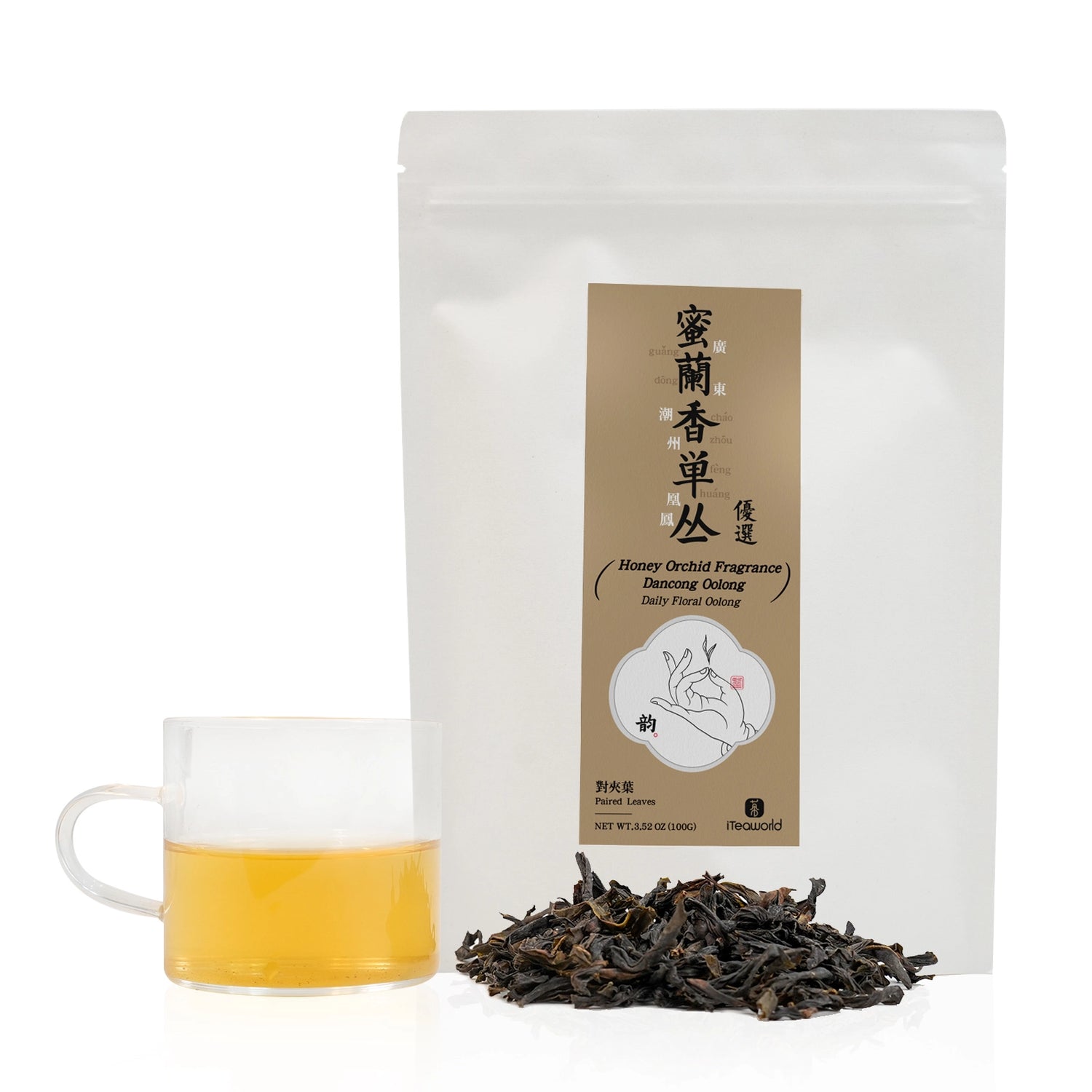
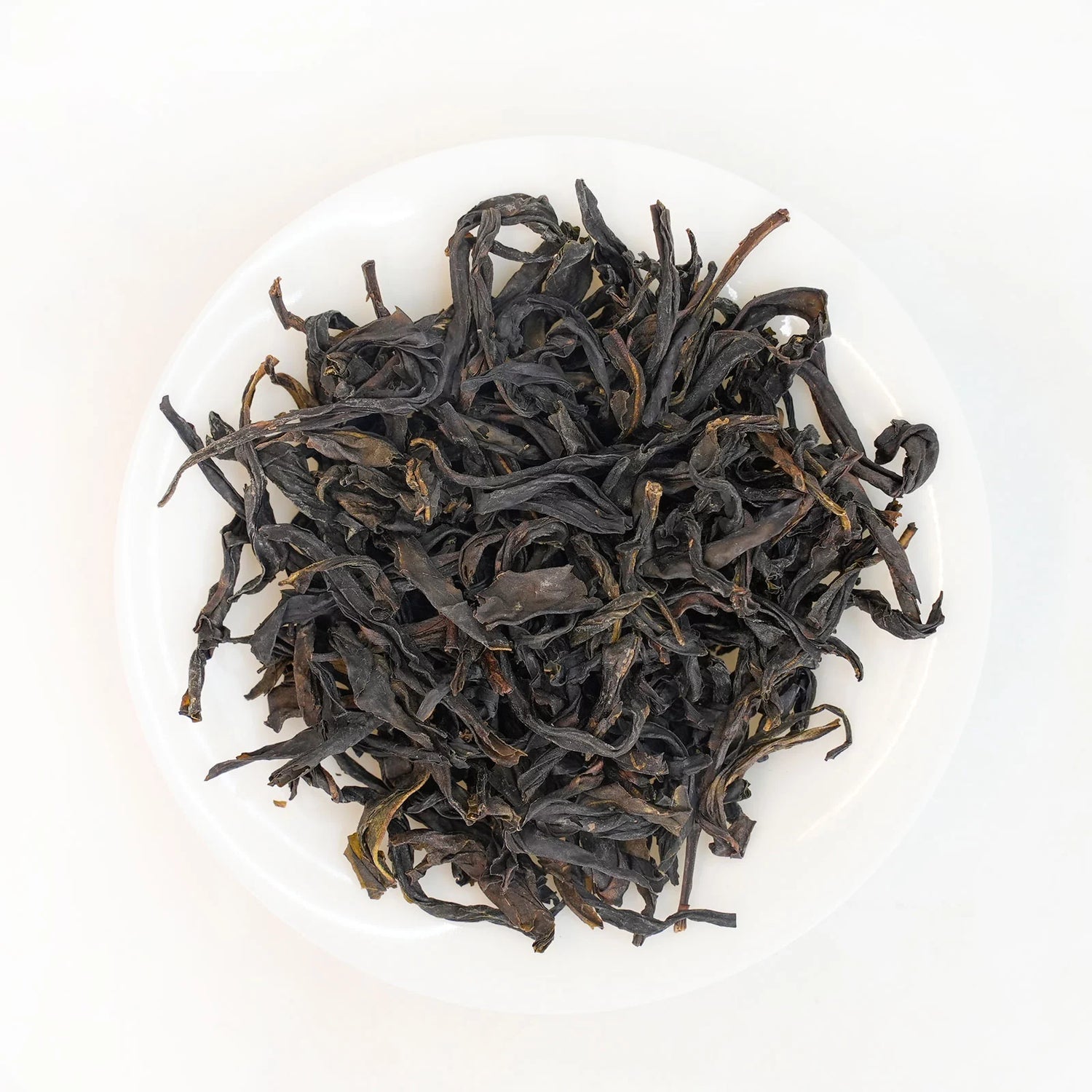
Mi Lan Xiang Dancong (Honey Orchid Aroma) oolong tea 100g for daily use (2025 spring)
$24.99
Unit price perMi Lan Xiang Dancong (Honey Orchid Aroma) oolong tea 100g for daily use (2025 spring)
$24.99
Unit price perFenghuang Dancong (Mi Lan Xiang)|凤凰单枞蜜兰香
Introduction
Mi Lan Xiang Dancong is one of the most celebrated Phoenix Dancong oolongs, known for its naturally rich honey-orchid aroma. The medium-twisted, dark dry leaves brew into a golden amber liquor, offering a full-bodied taste with layers of floral and fruity sweetness. Its nectar-like smoothness lingers across multiple infusions, with a refreshing aftertaste that deepens as you brew.
This tea comes from a village located in one of the premium zones for Zhongshan Dancong—an area recognized by locals as the gateway to the high-mountain growing region. Teas from this zone are considered top-grade among commercial Dancongs, offering exceptional quality for the price. The tea is crafted by a seasoned tea maker from a family with a long tradition of tea-making, with over 20 years of hands-on experience.
Origin: Fengxi Village, Fenghuang Town, Guangdong | 500m
Oxidation: 40-50% | Roast: Medium (100-120°C, 6-10h)
Tea Maker: Liu Chengpeng, a second-generation tea artisan with over 20 years of tea-making experience in a family that has crafted Dancong tea for generations.
Cultivar: Mi Lan Xiang Dancong
Harvest: April 2025 (Spring)
Elevation: 500-600m
Oxidation: Medium (40–50%)
Roast: Light (traditional charcoal finishing)
Shelf Life: 3 years
Storage: Store in an airtight container in a cool, dry, and odor-free place. For light-roasted Dancong, refrigeration is recommended to preserve its floral aroma.
Brewing
Vessel: Porcelain gaiwan / thin clay pot
Water: Spring/pure, 100ml : 5g tea, 100°C|212°F
Steeping: 1st-3rd: 8-12s; 4th-7th: +5-10s per steep
Flavor
Aroma: Orchid (main), honey, ripe fruit notes
Taste: Thick like honey | Smooth as nectar
Aftertaste: Lingering >1min, cooling floral finish
Occasions
Morning indulgence (energizing yet smooth)
Afternoon relaxation (floral aroma soothes the mind)
Cold brew (4°C, 2h; enhances fruity notes)


